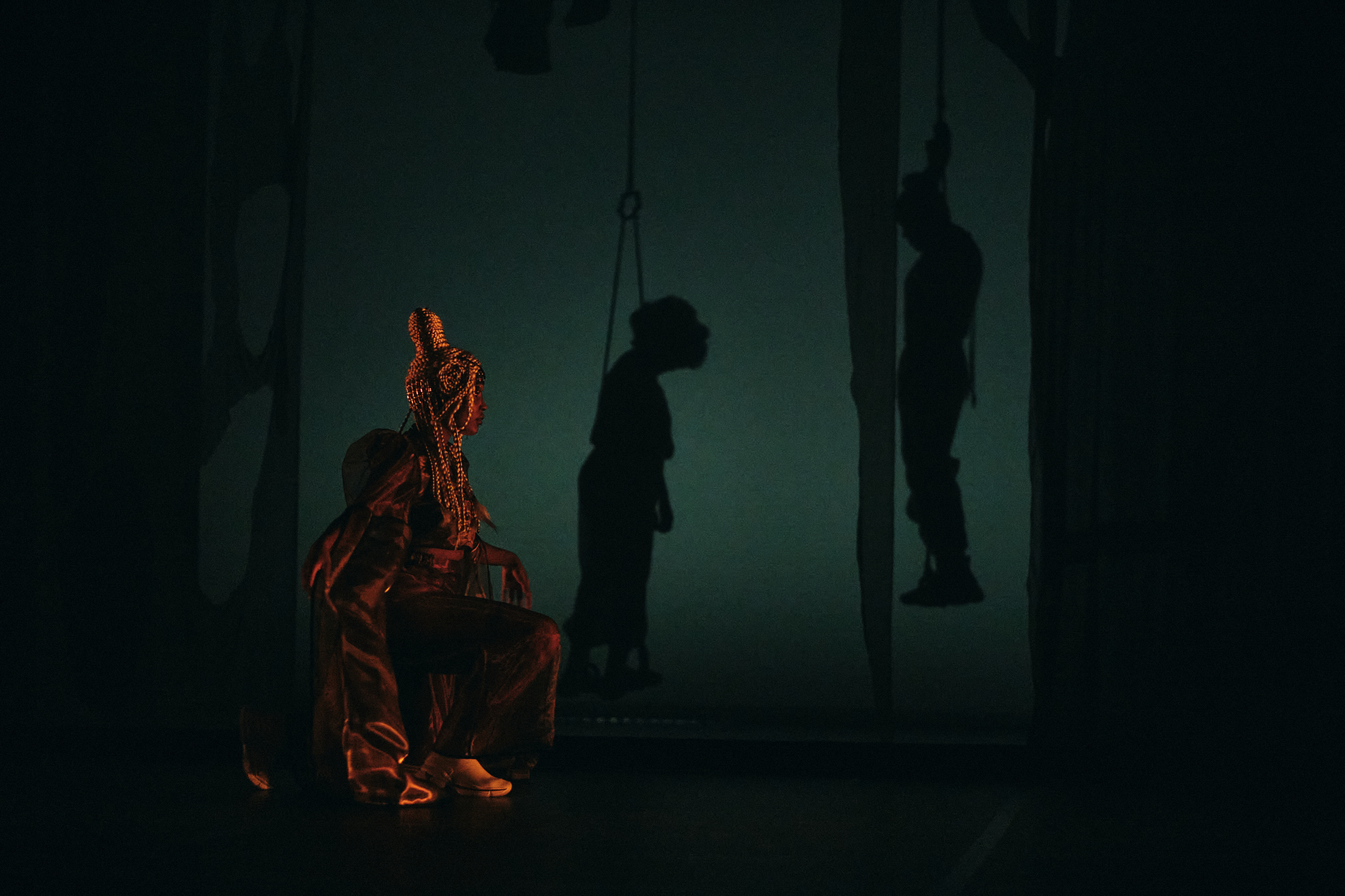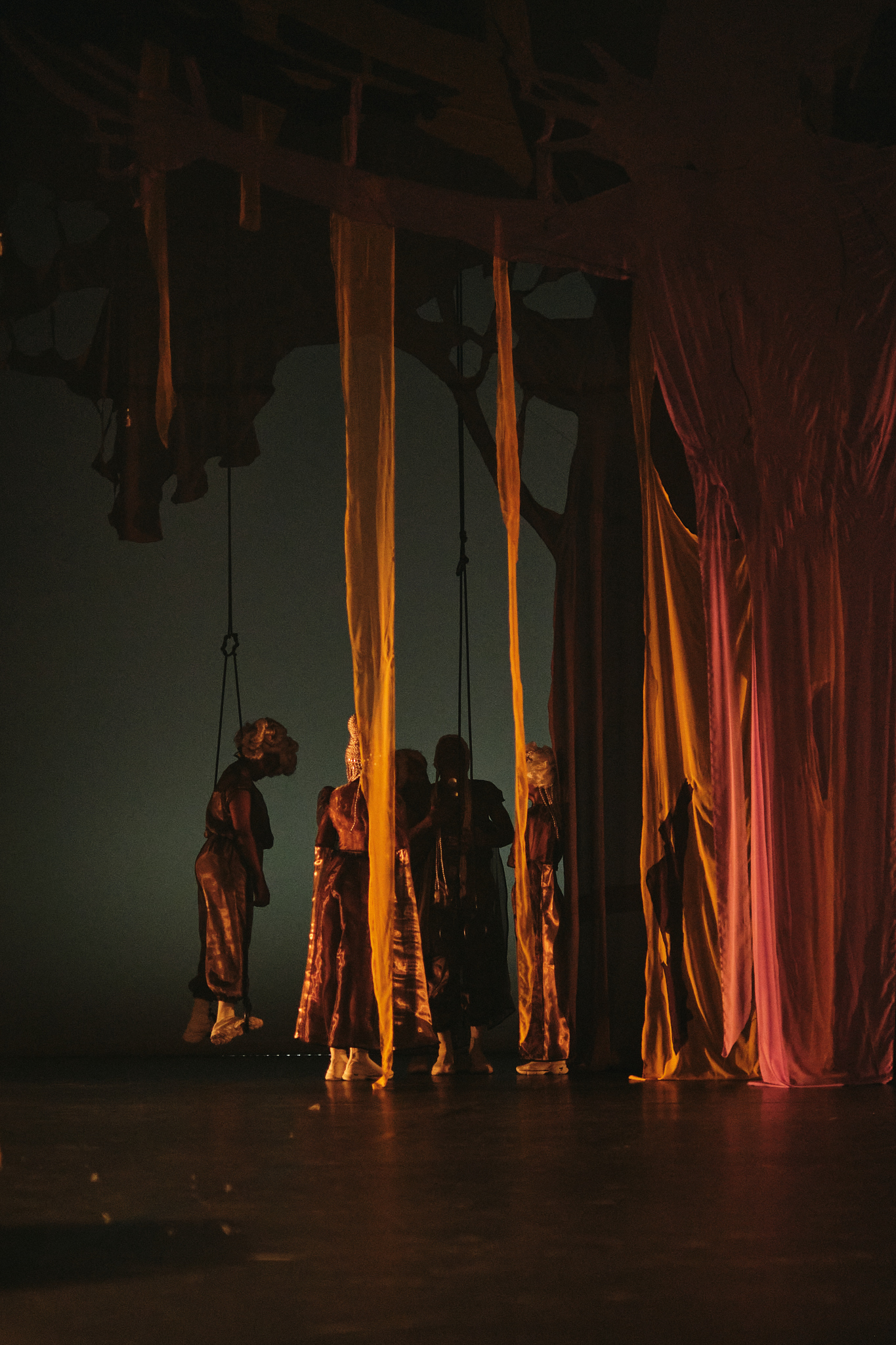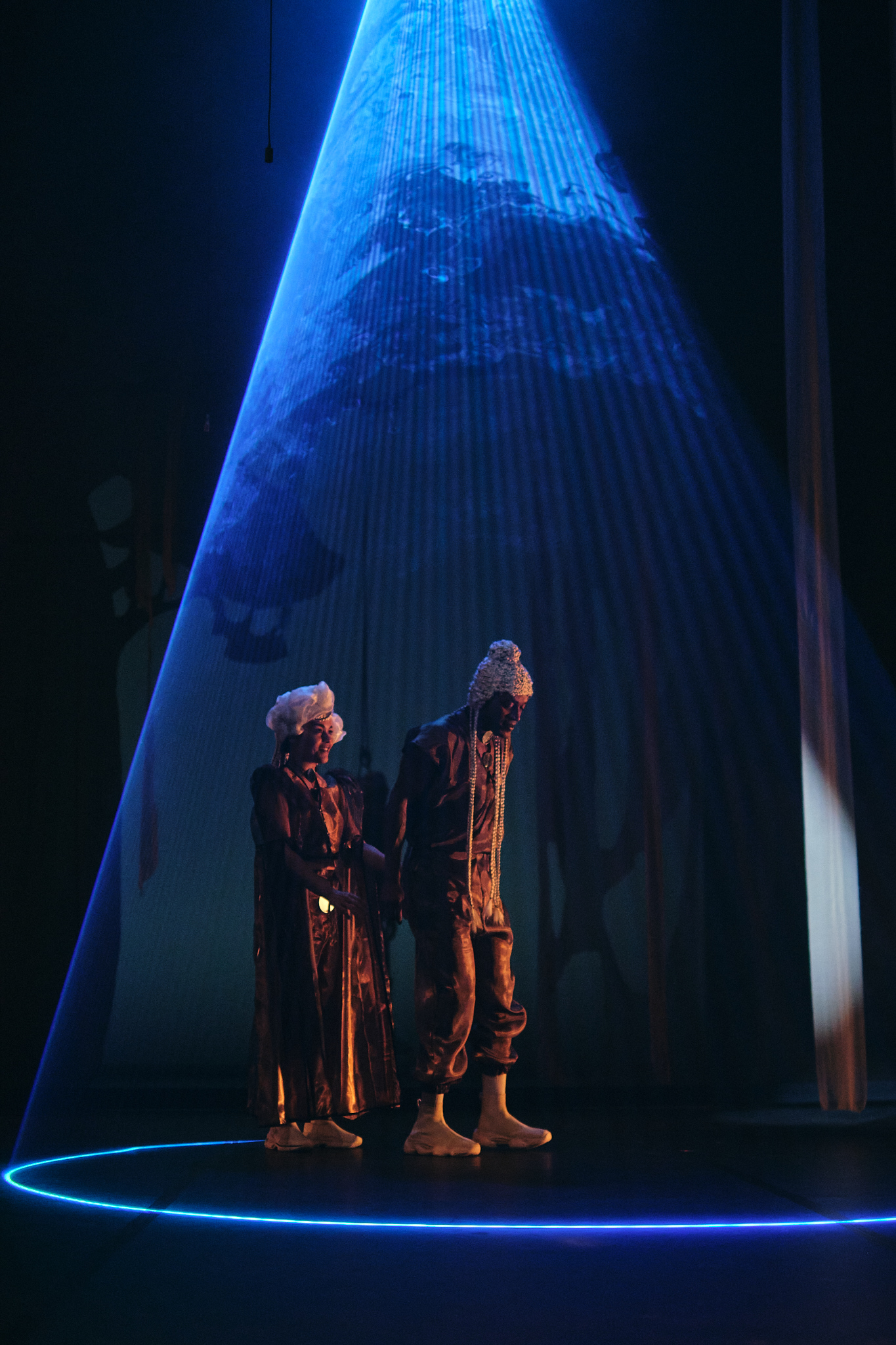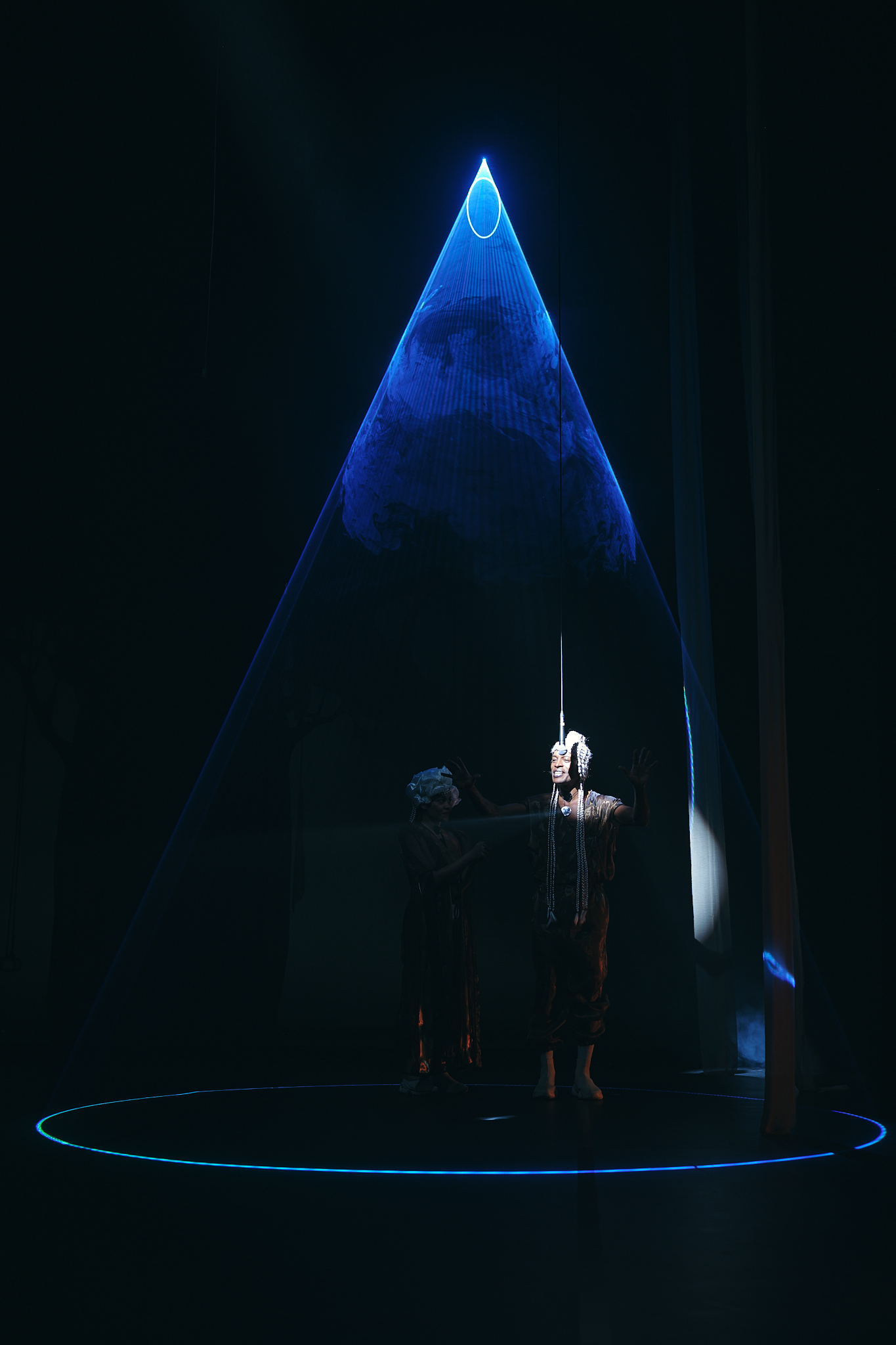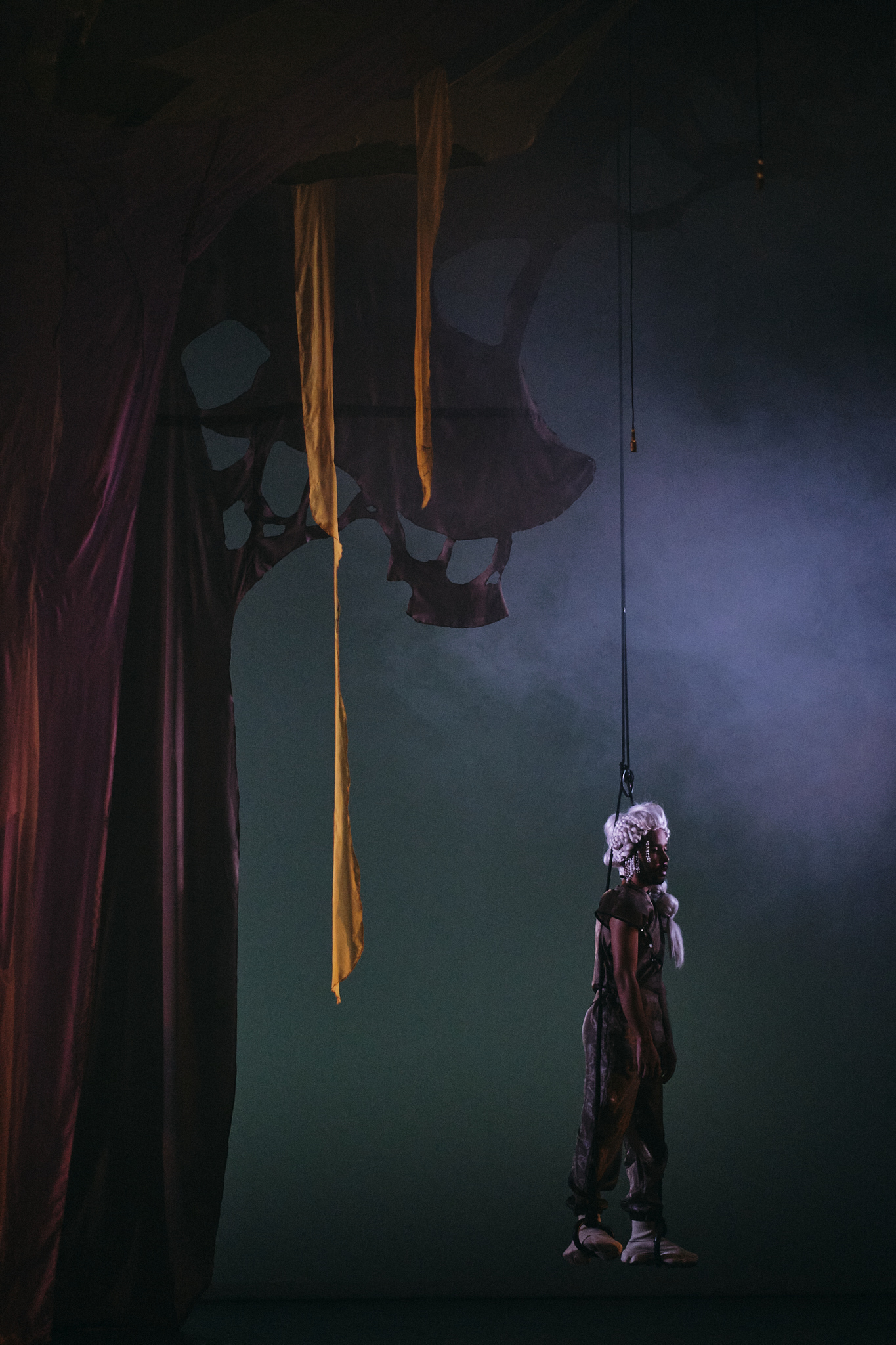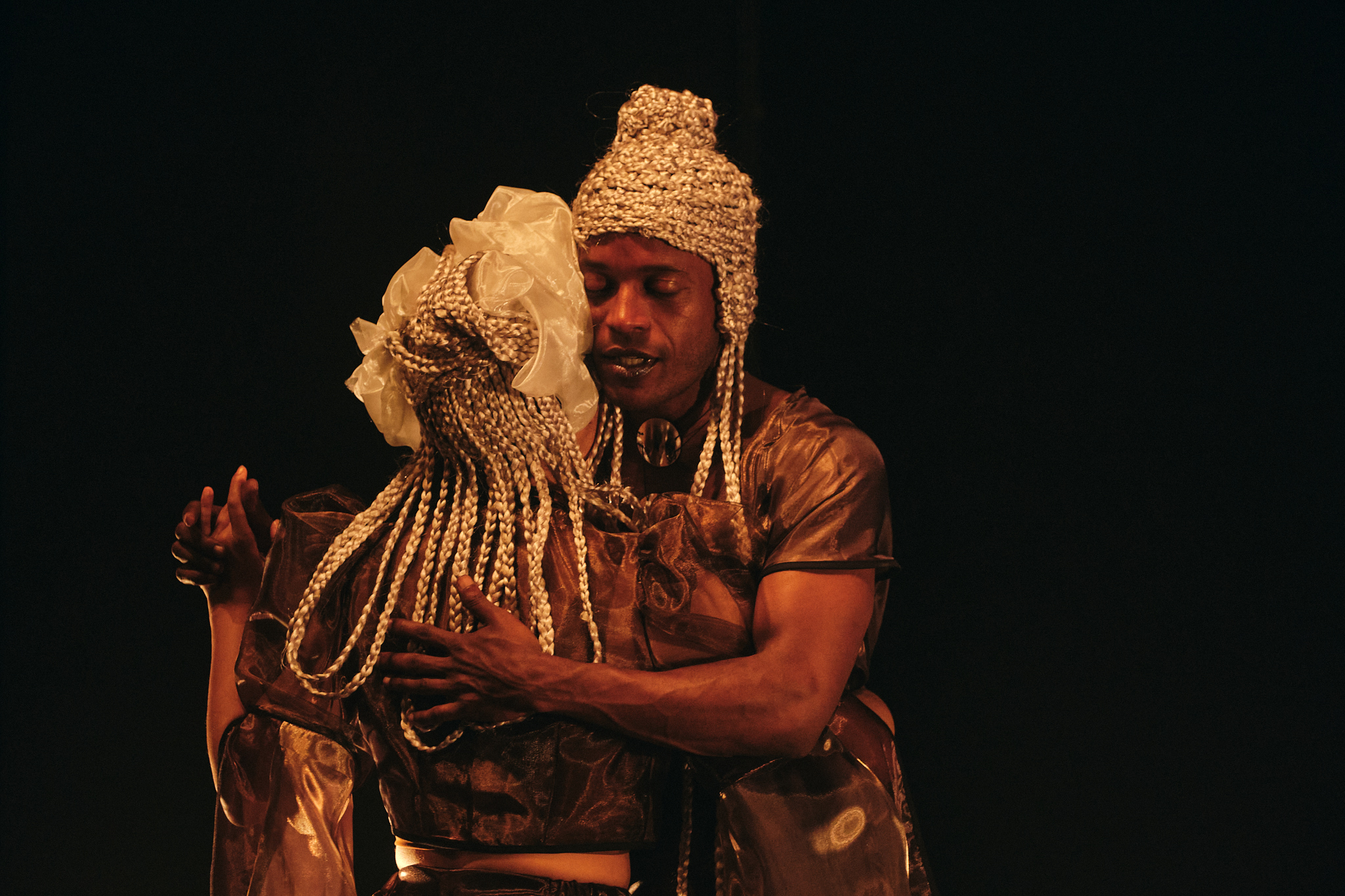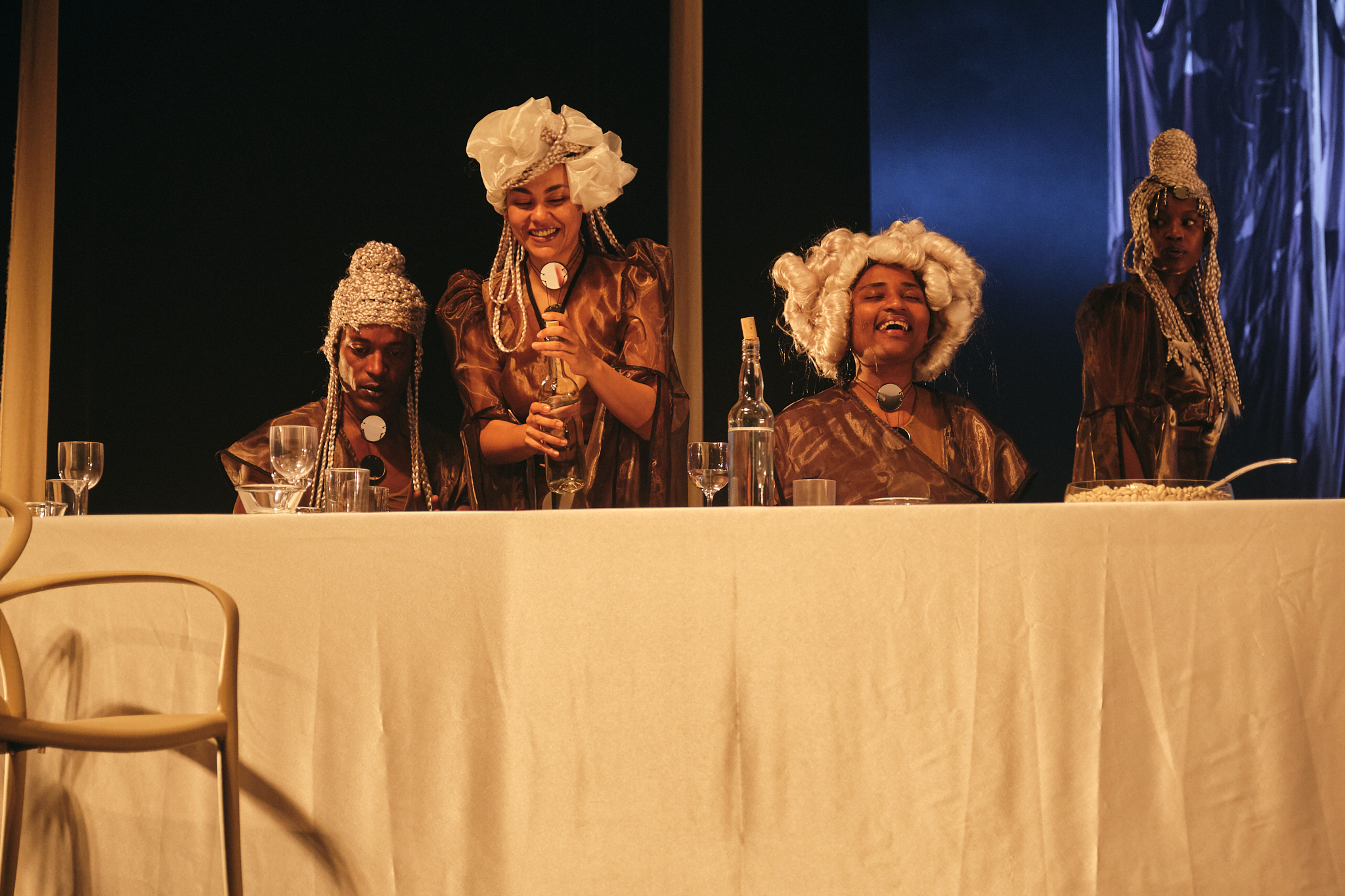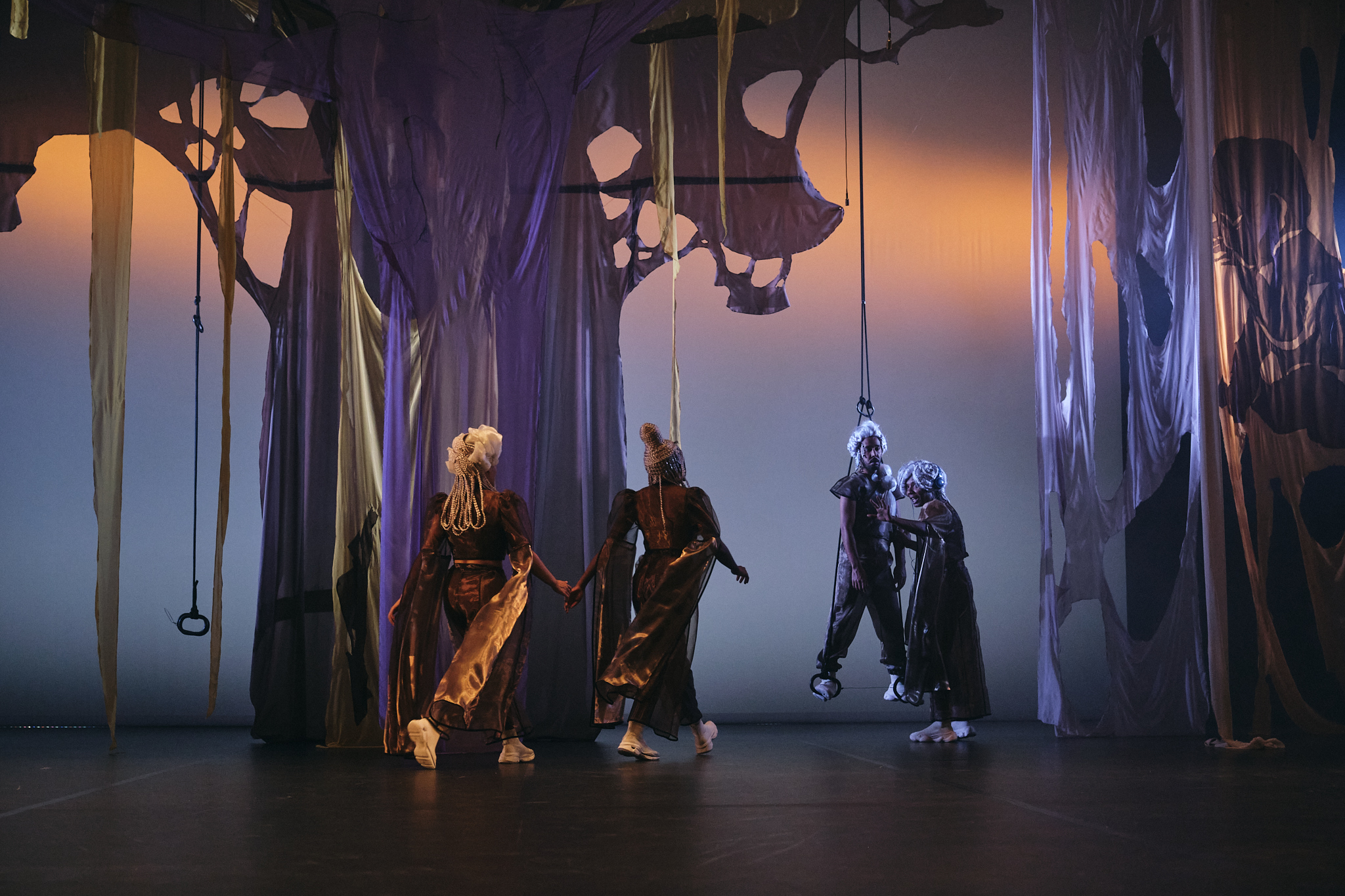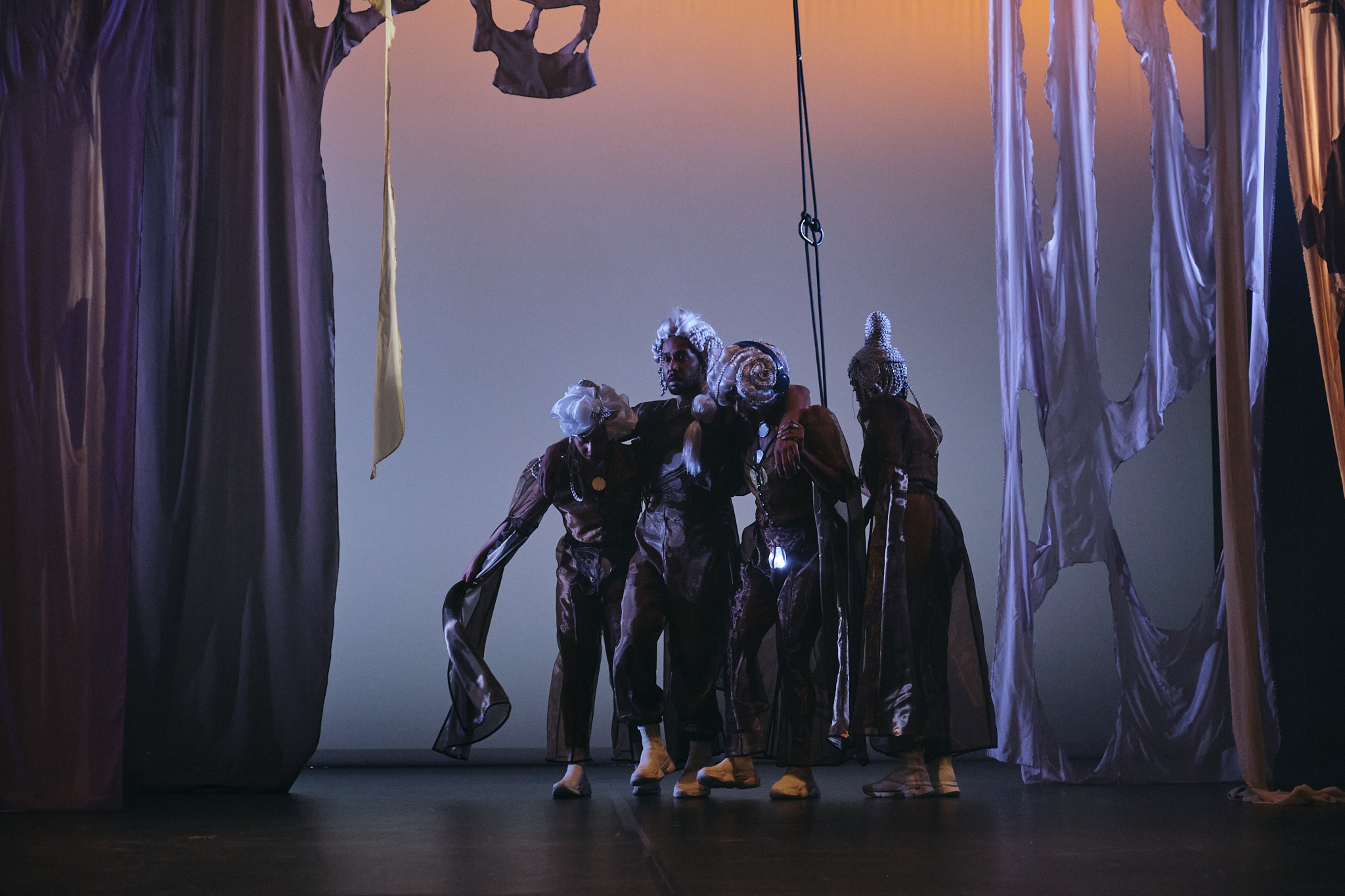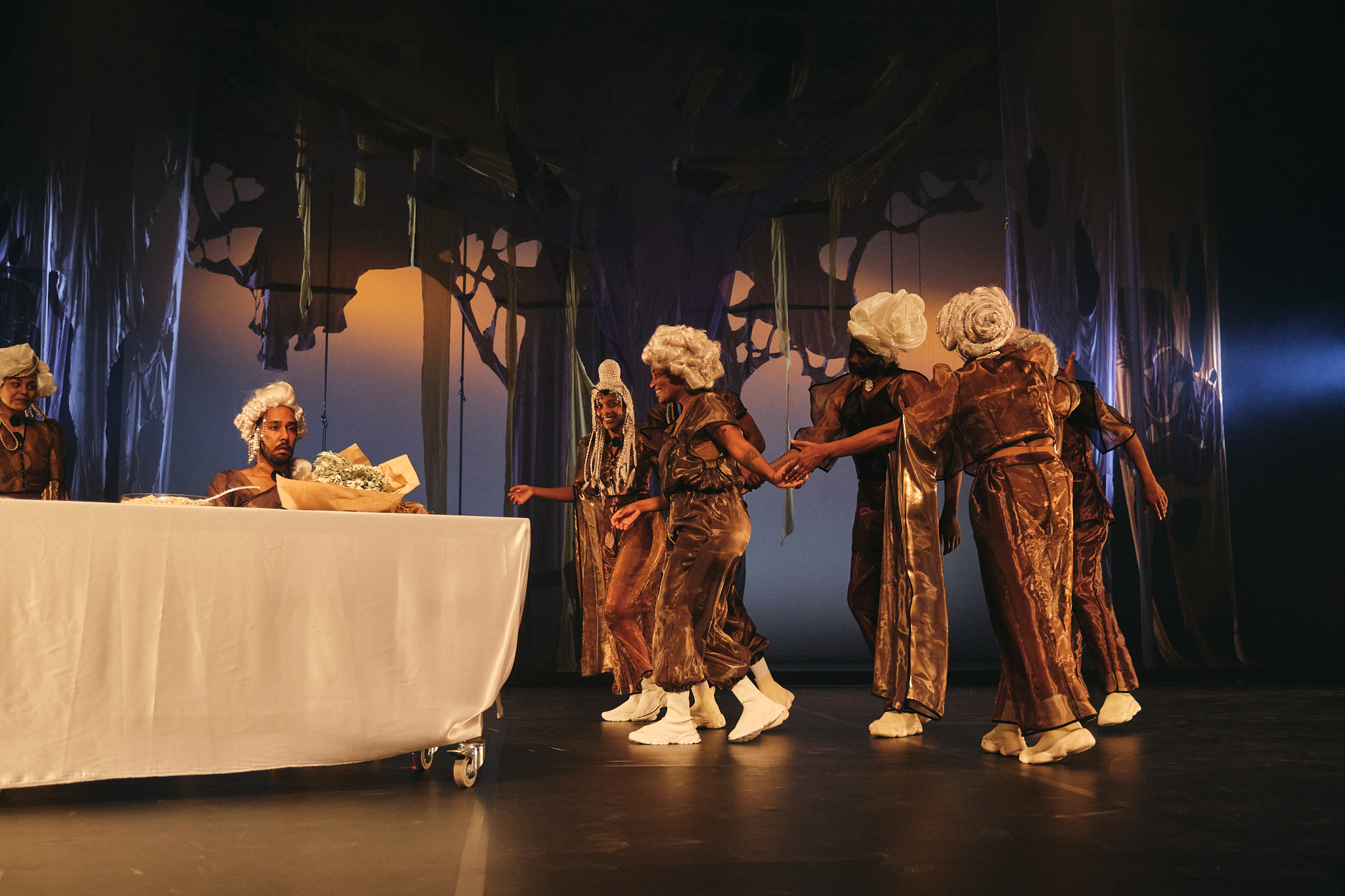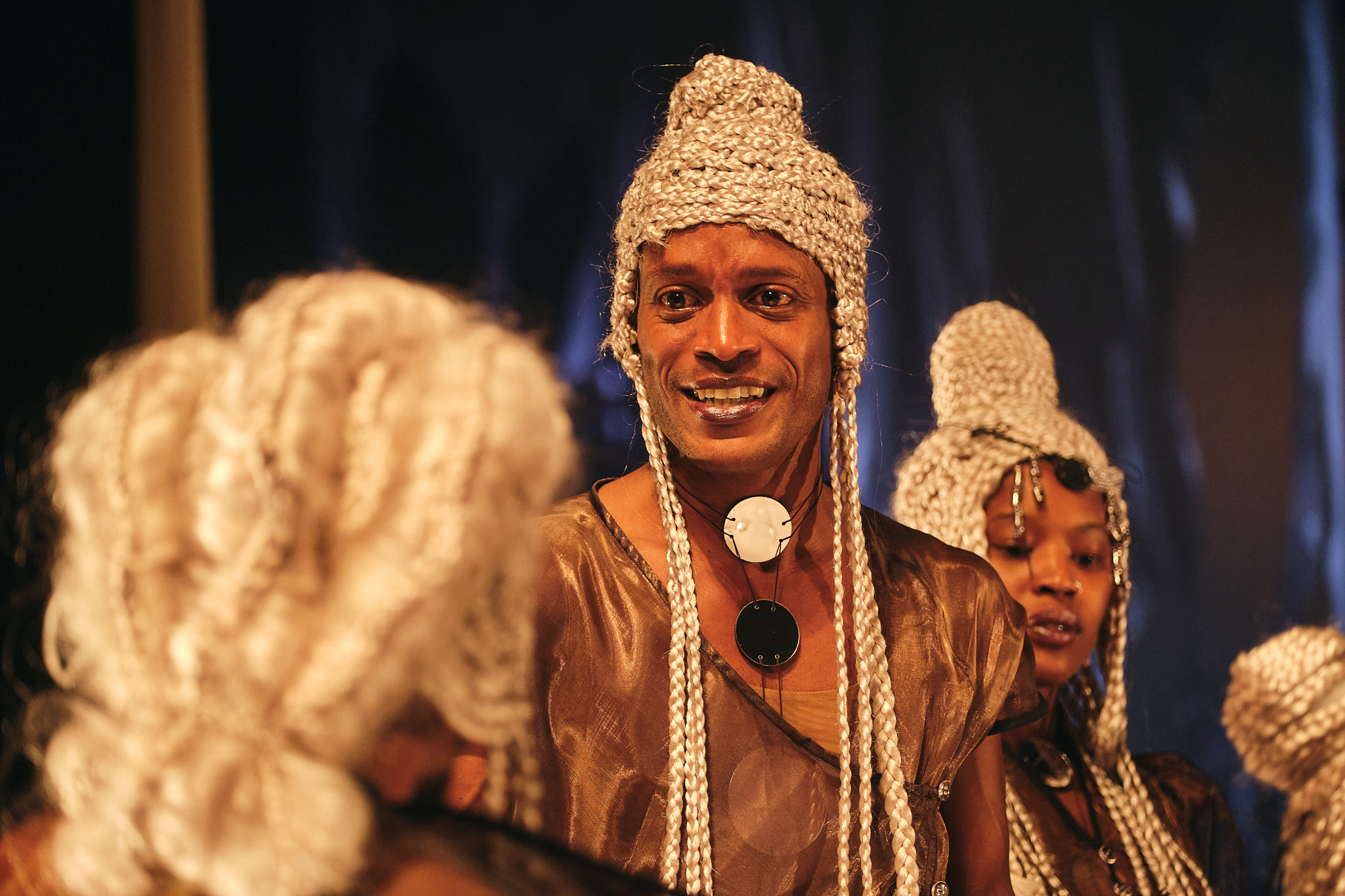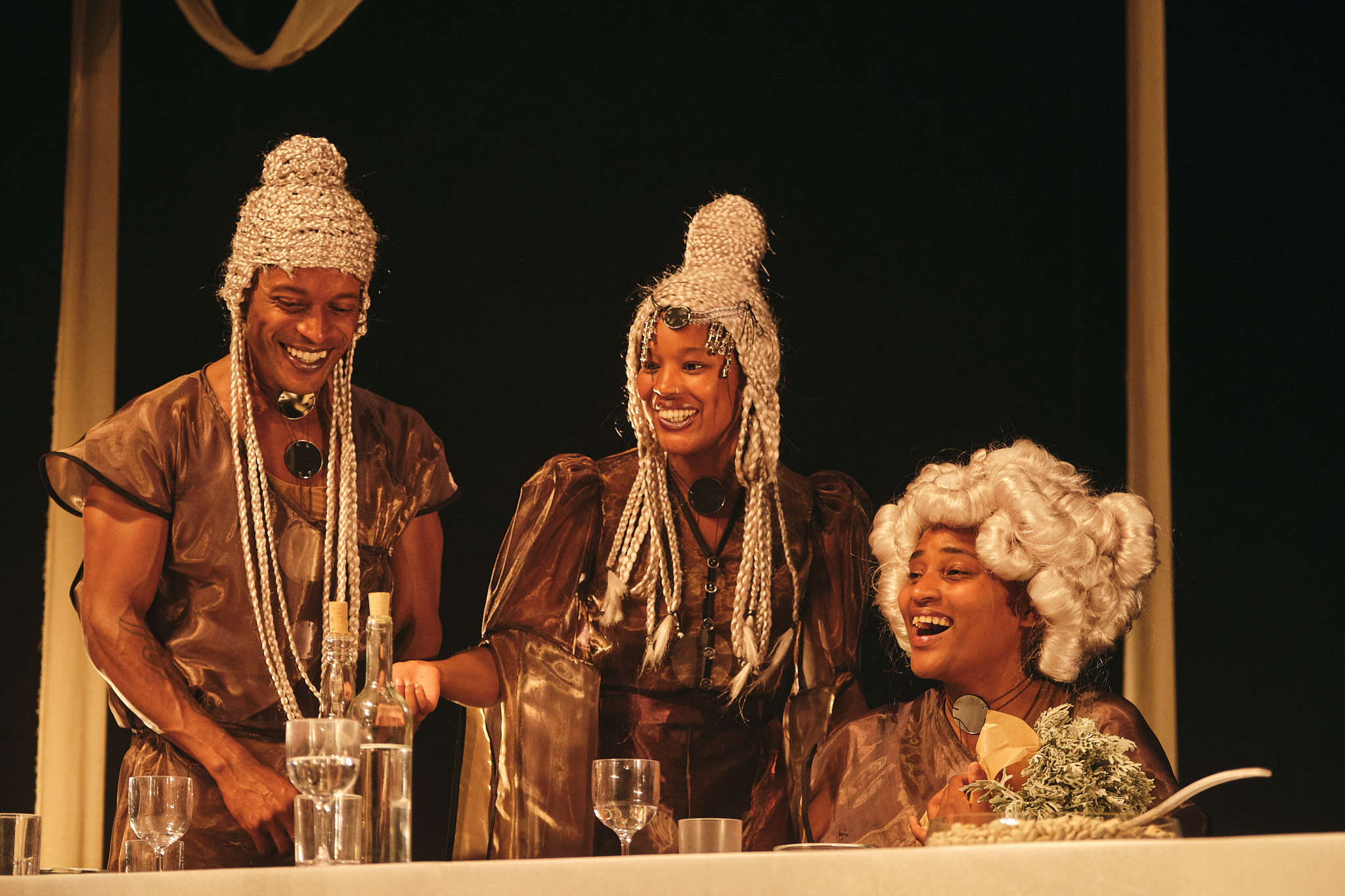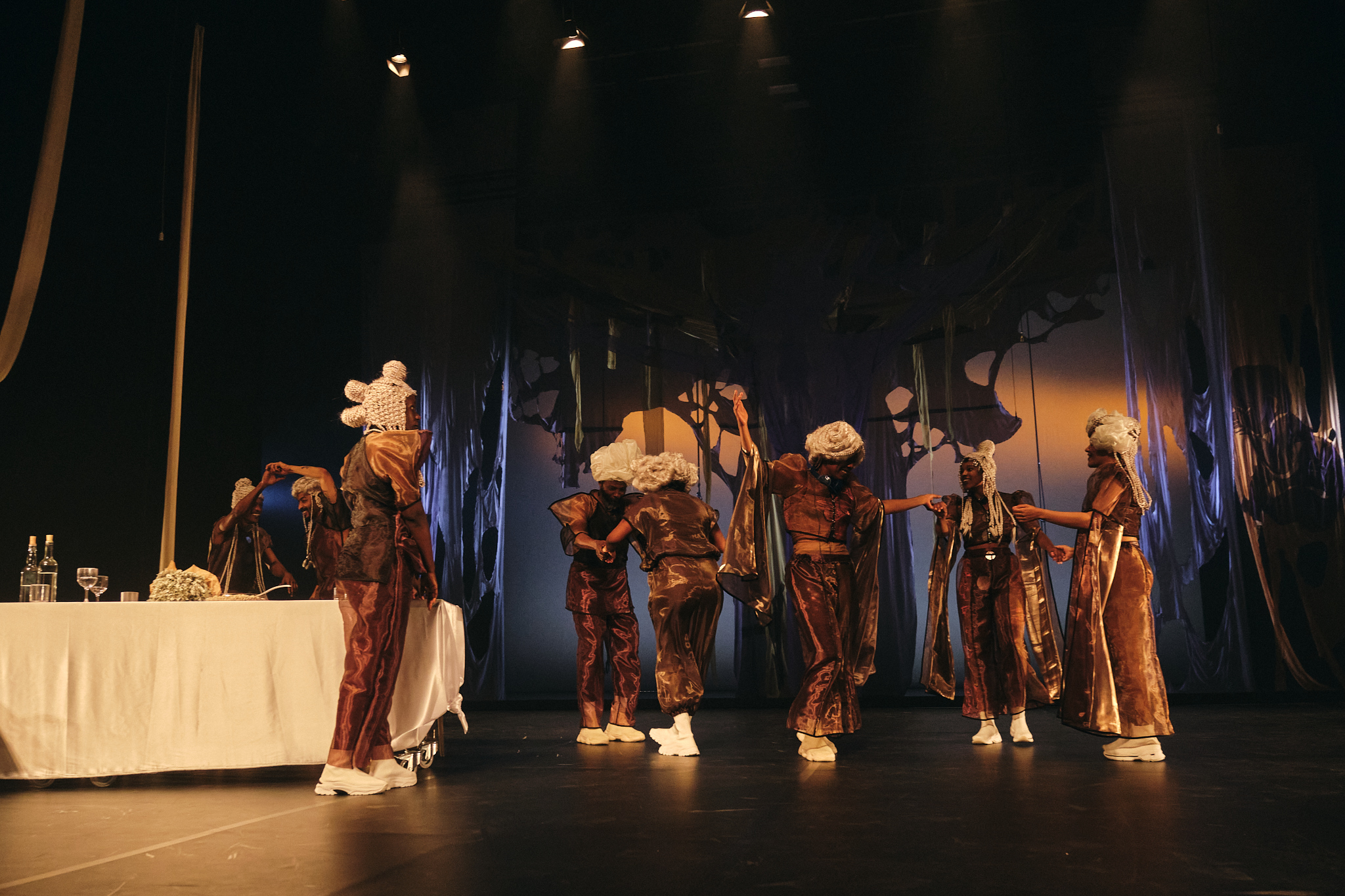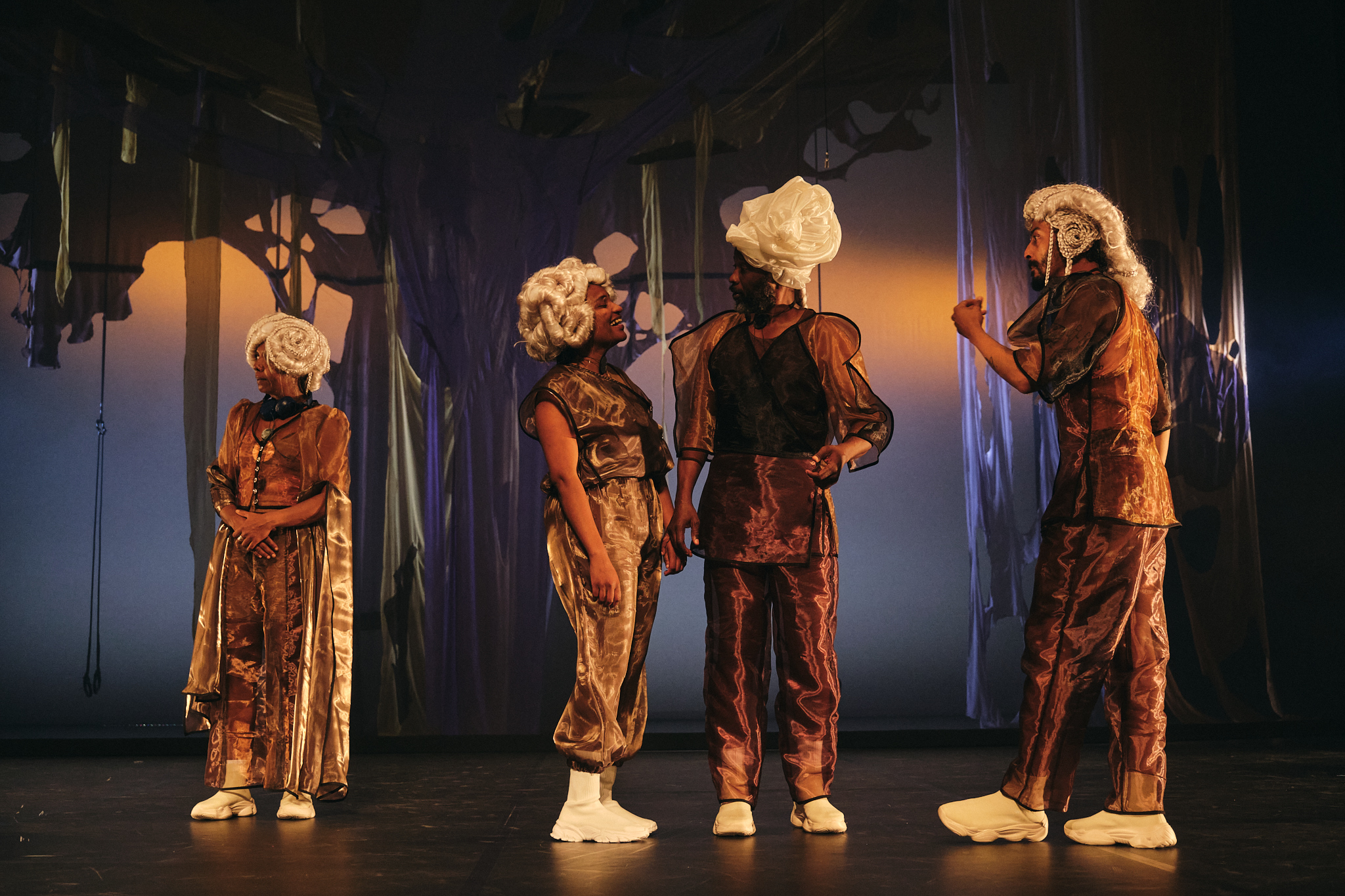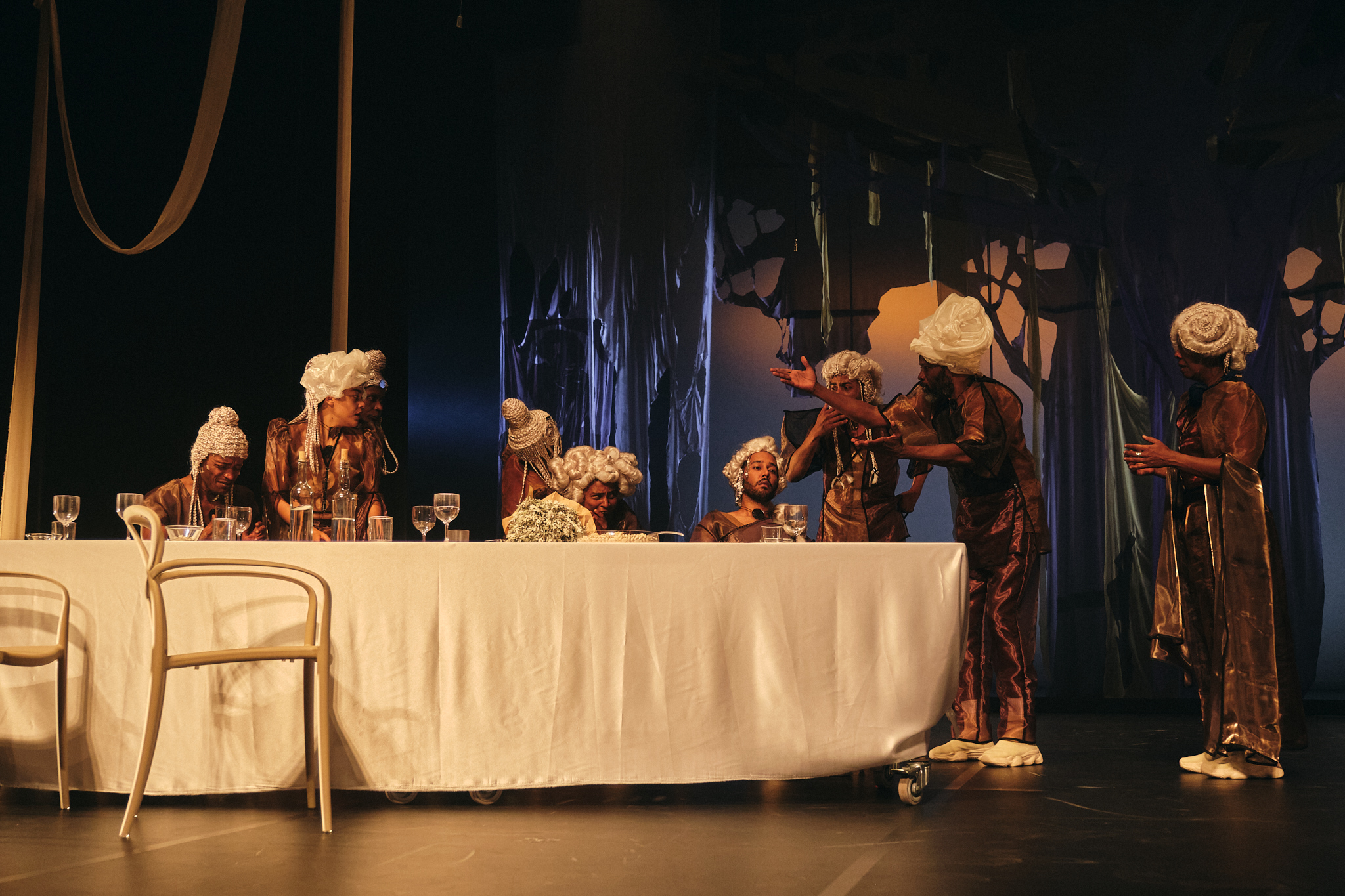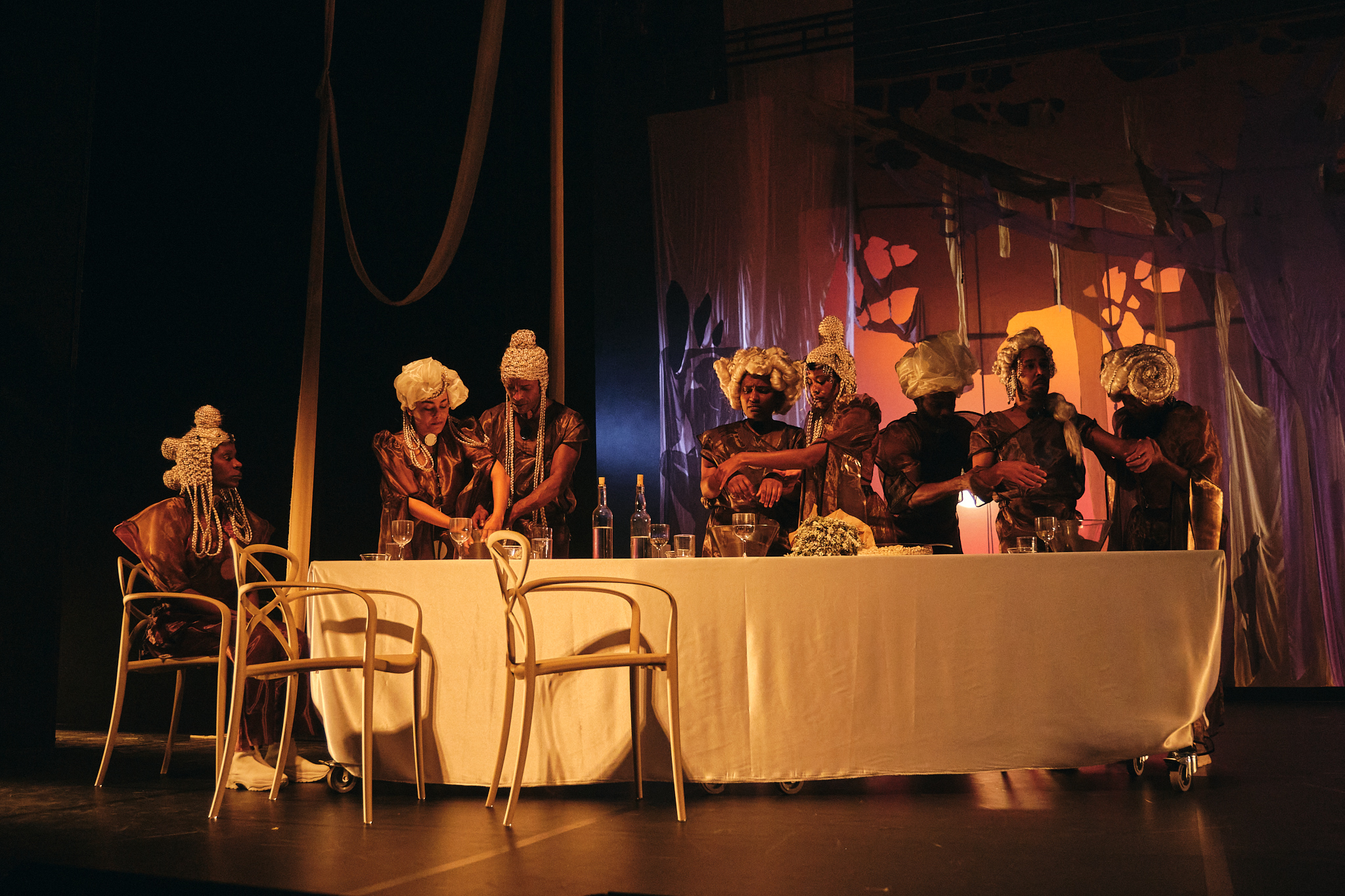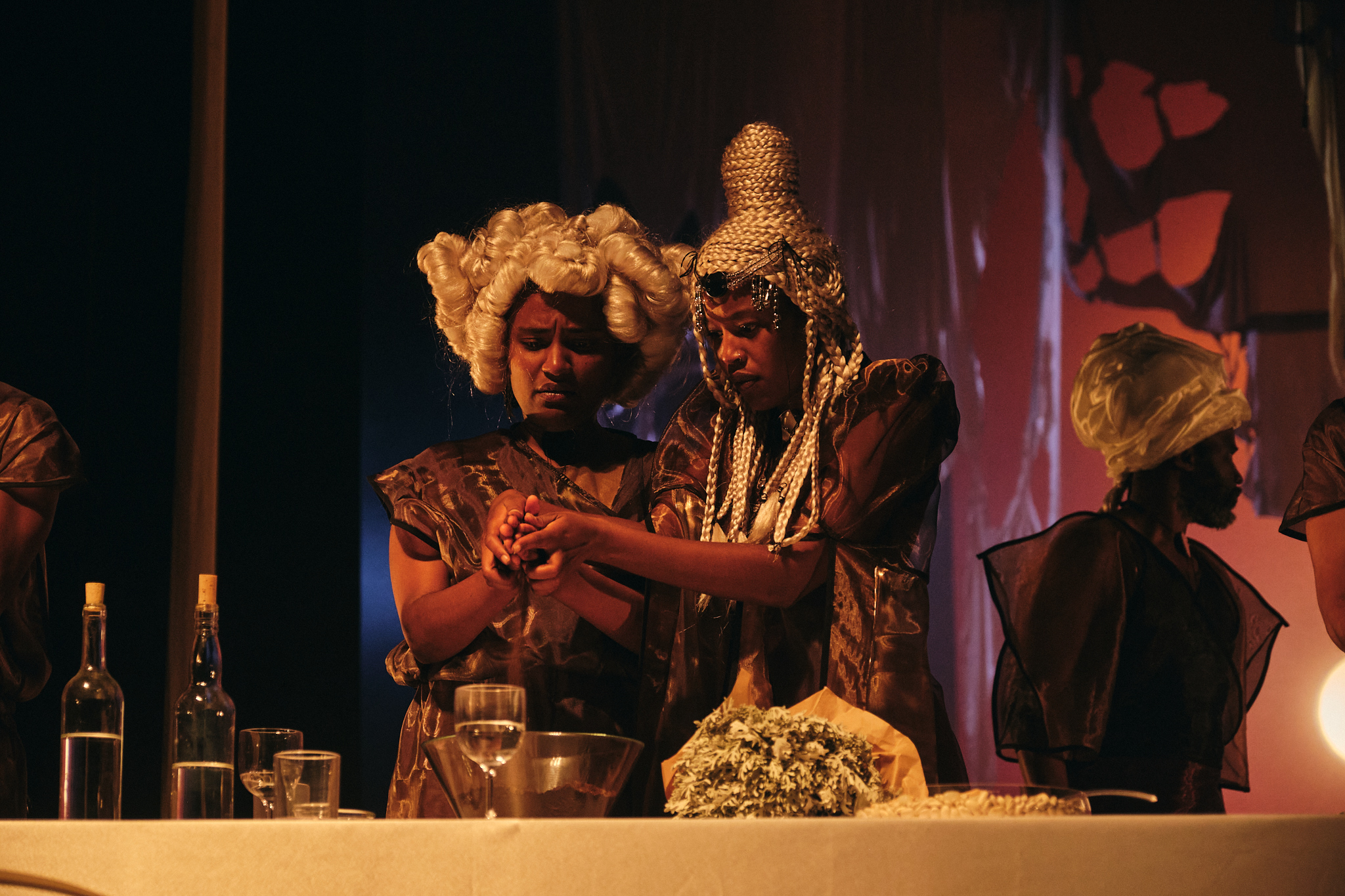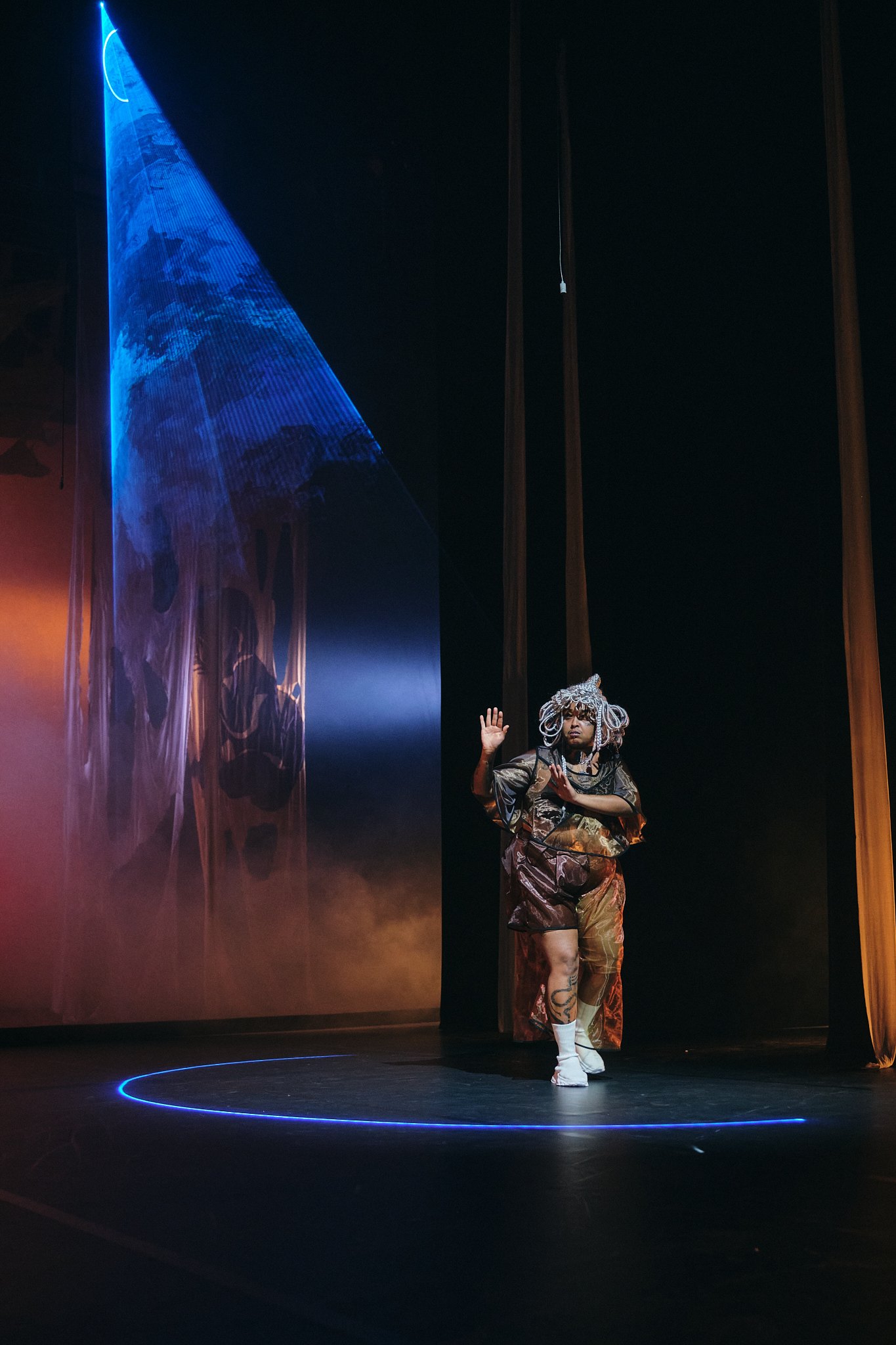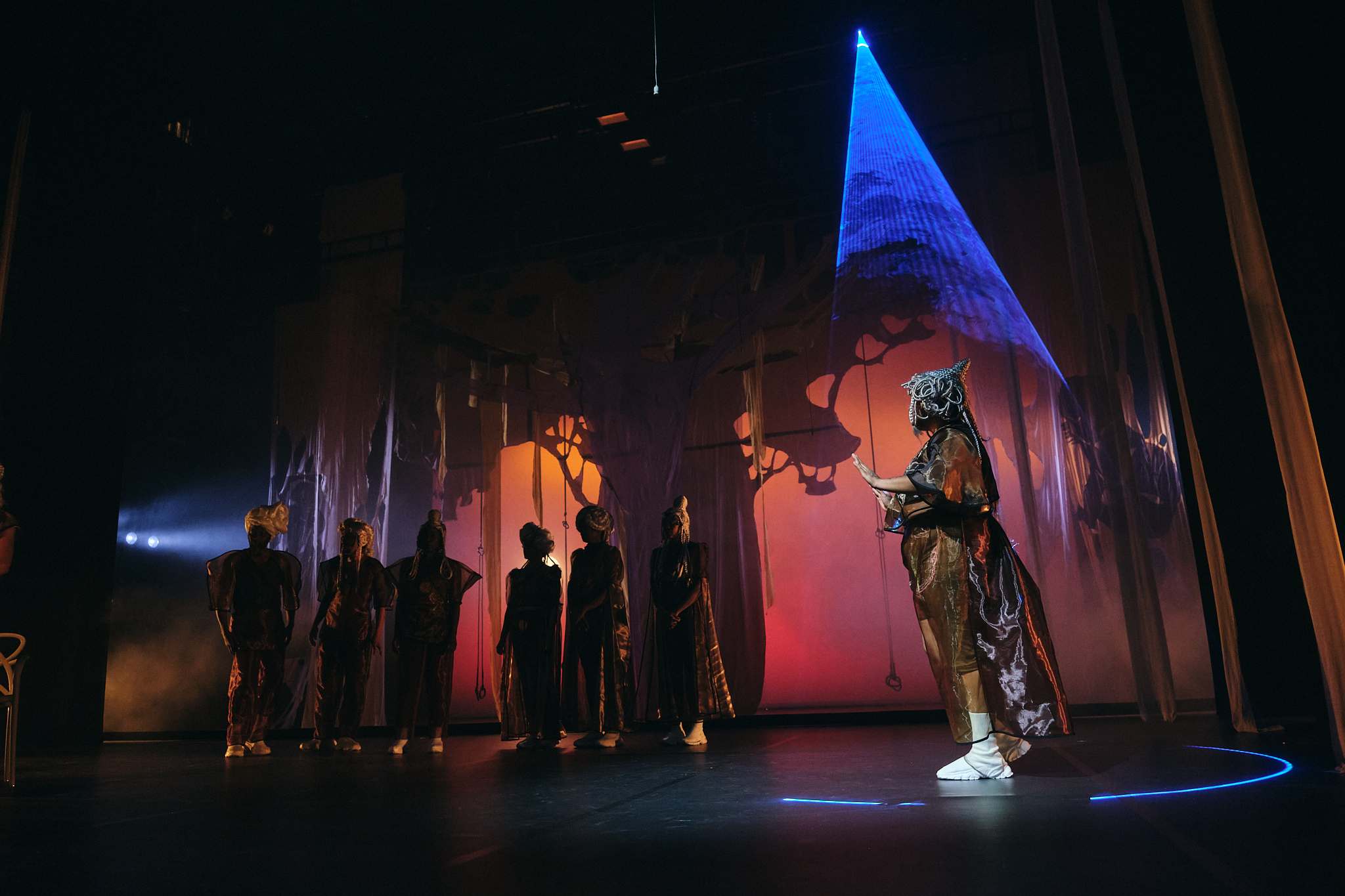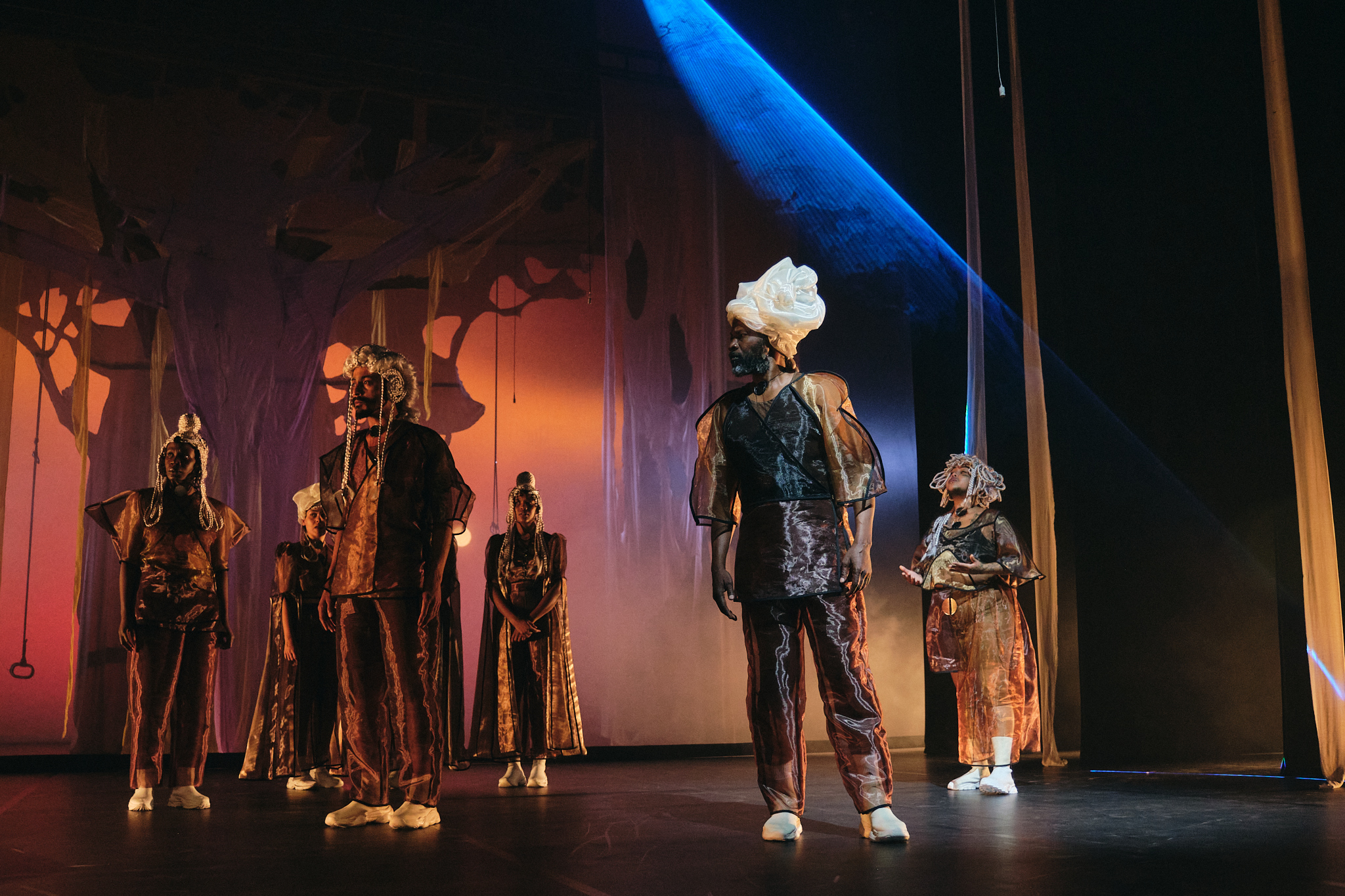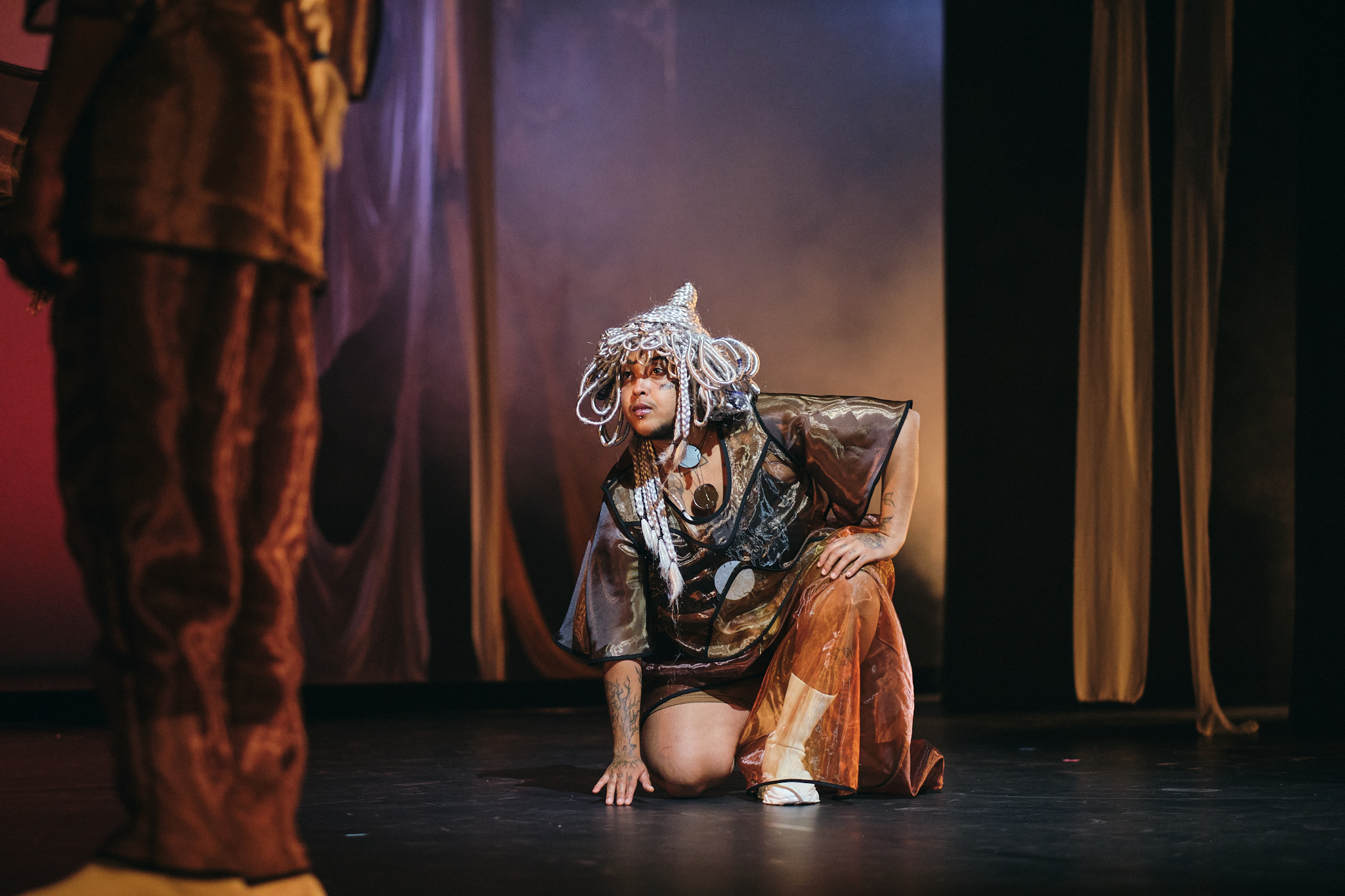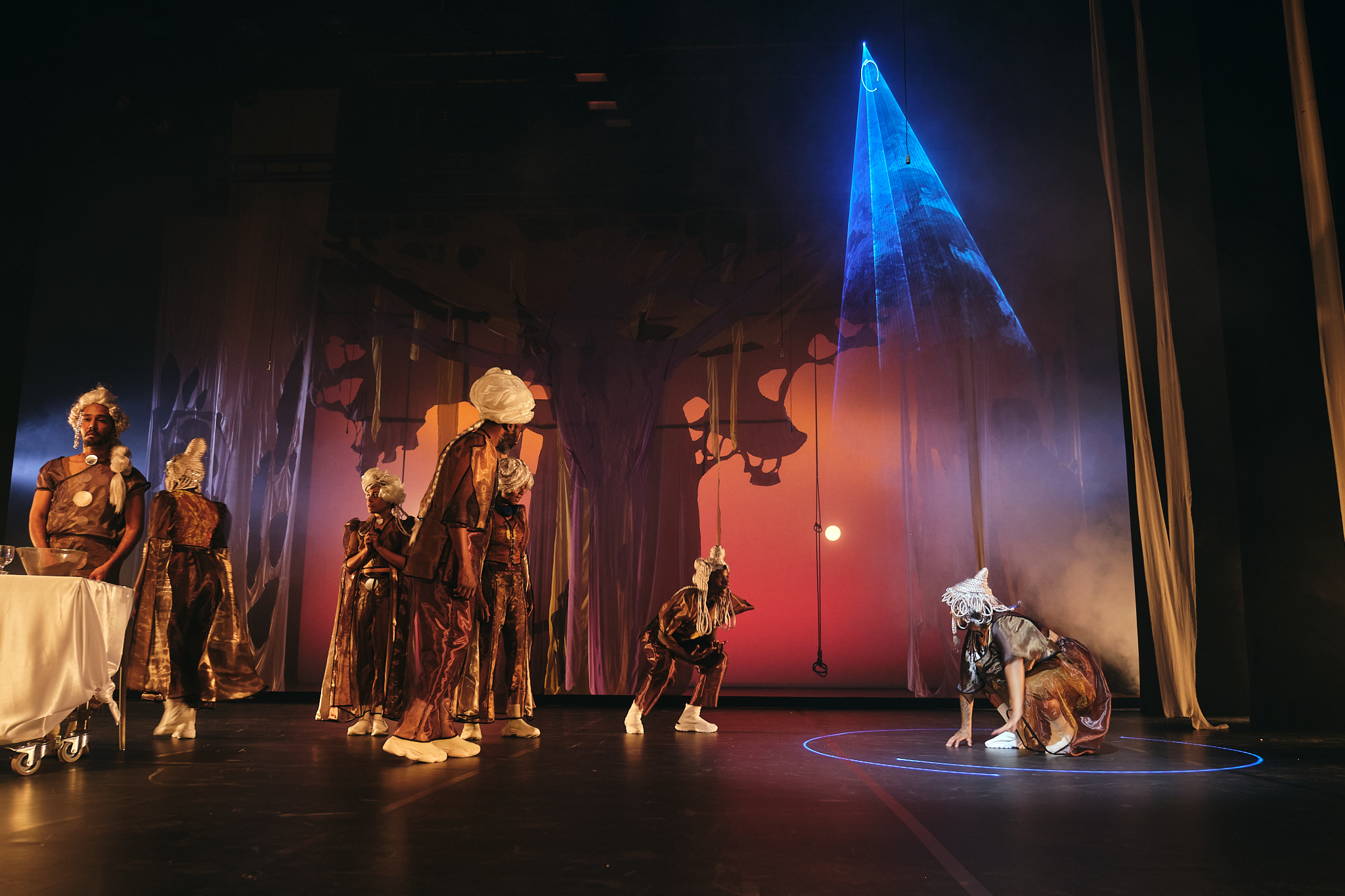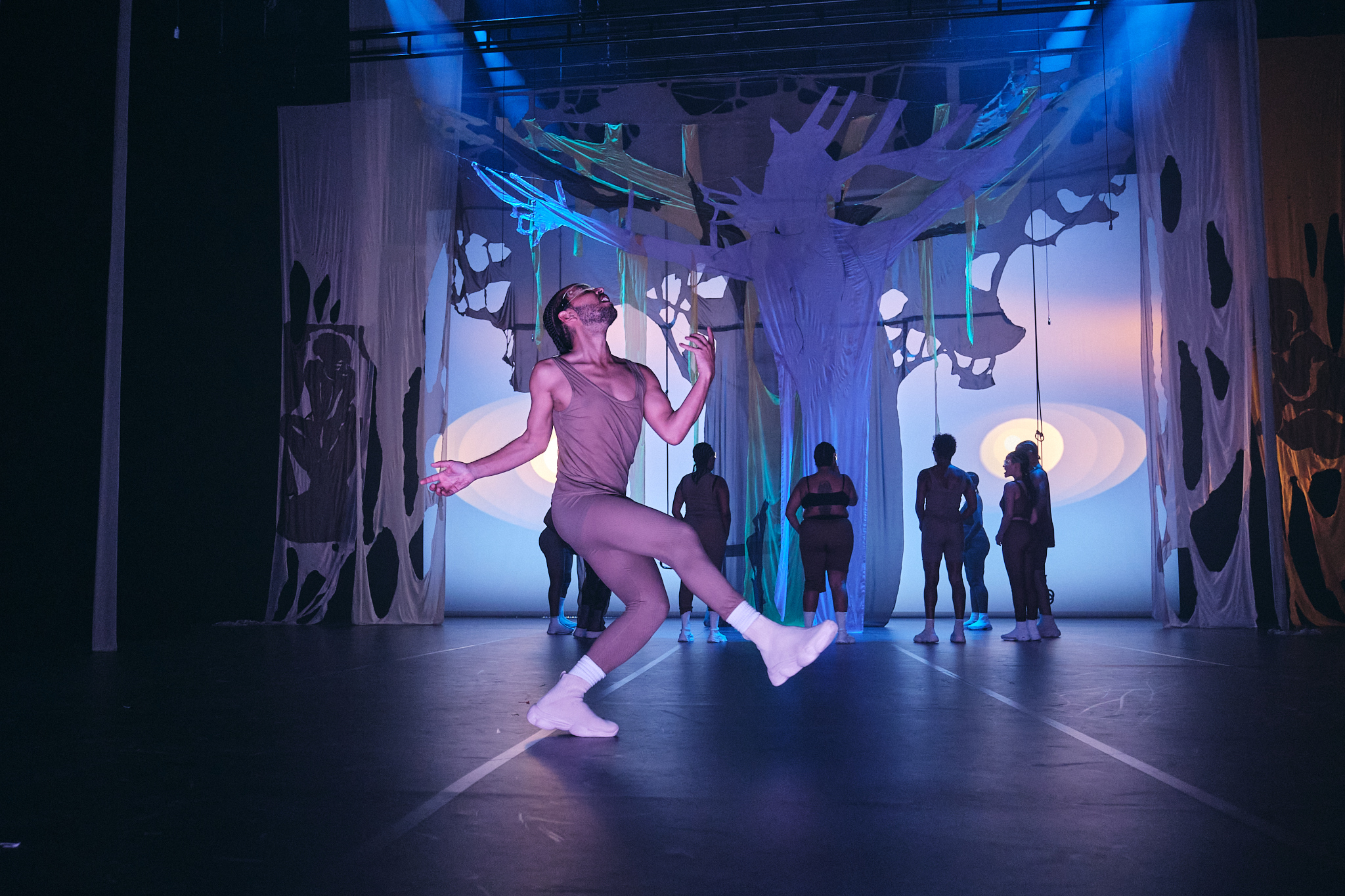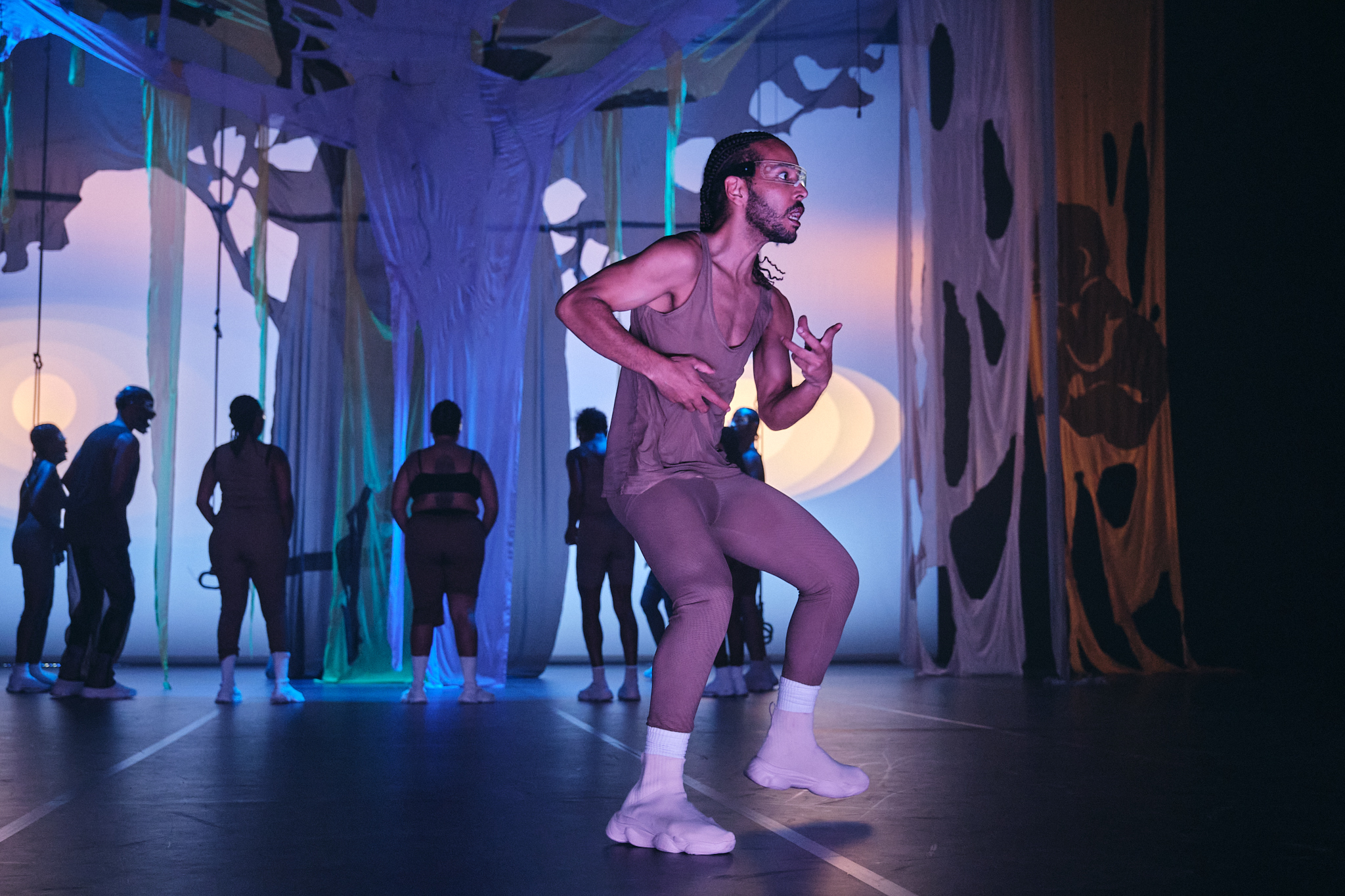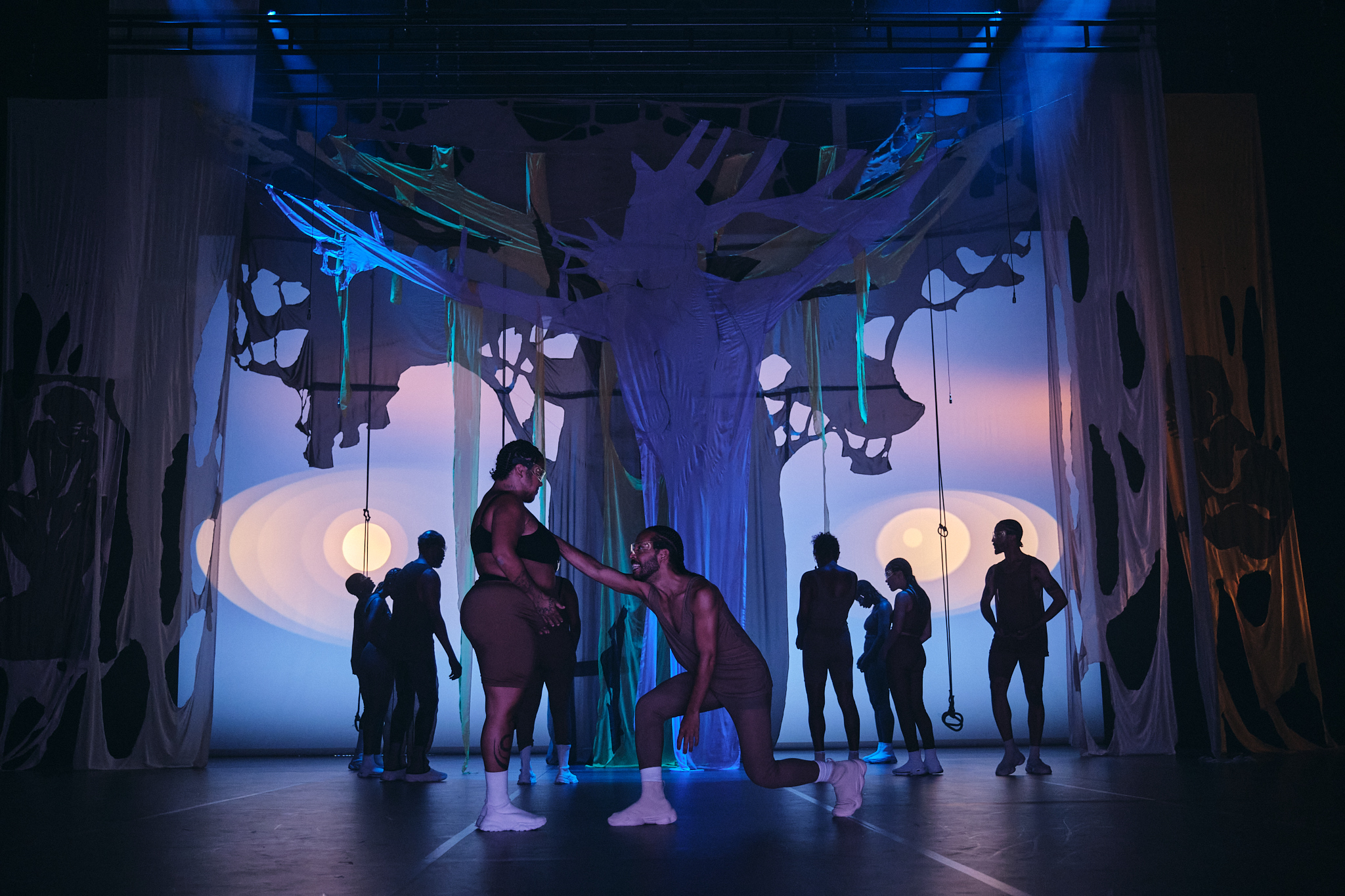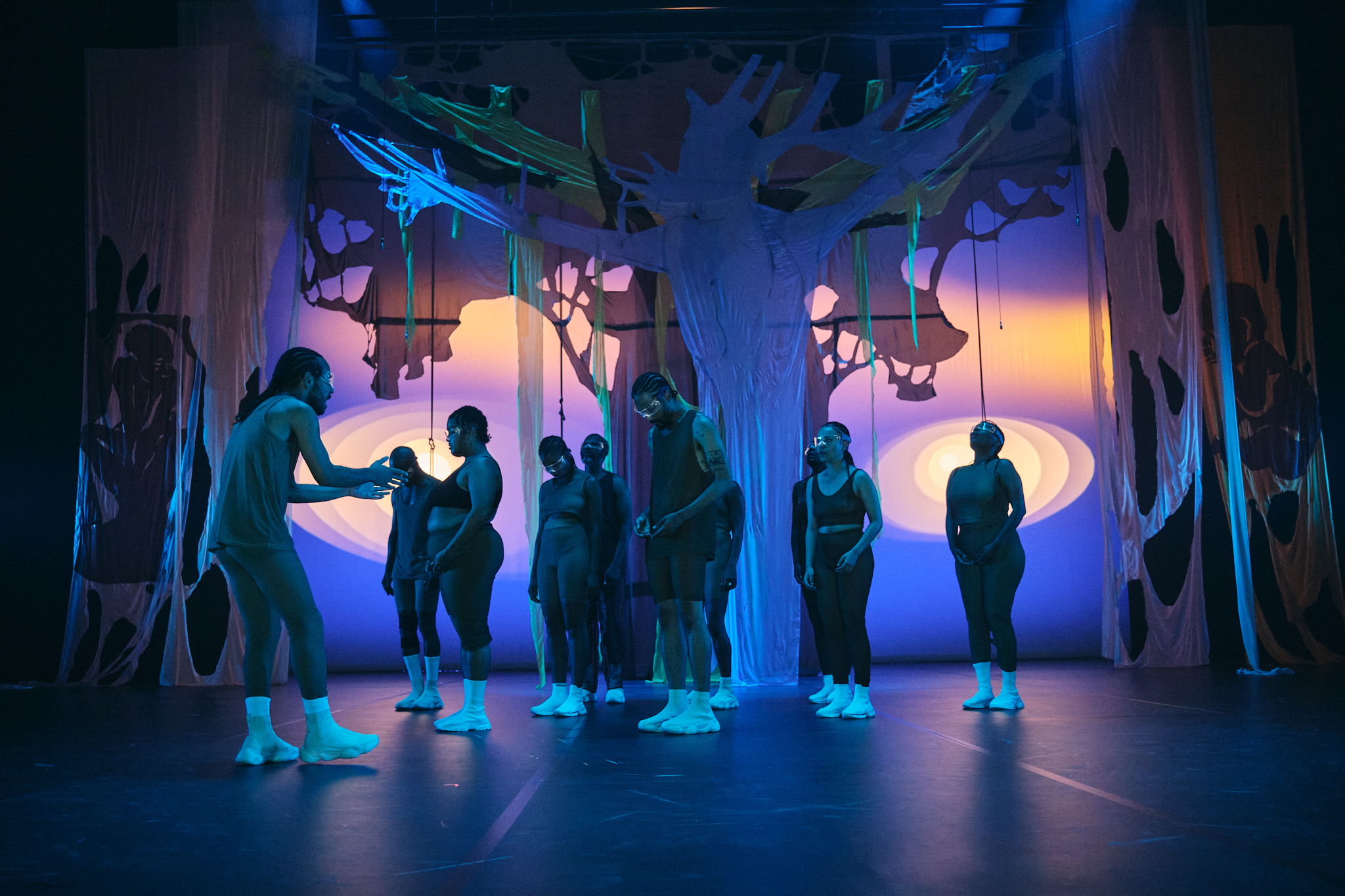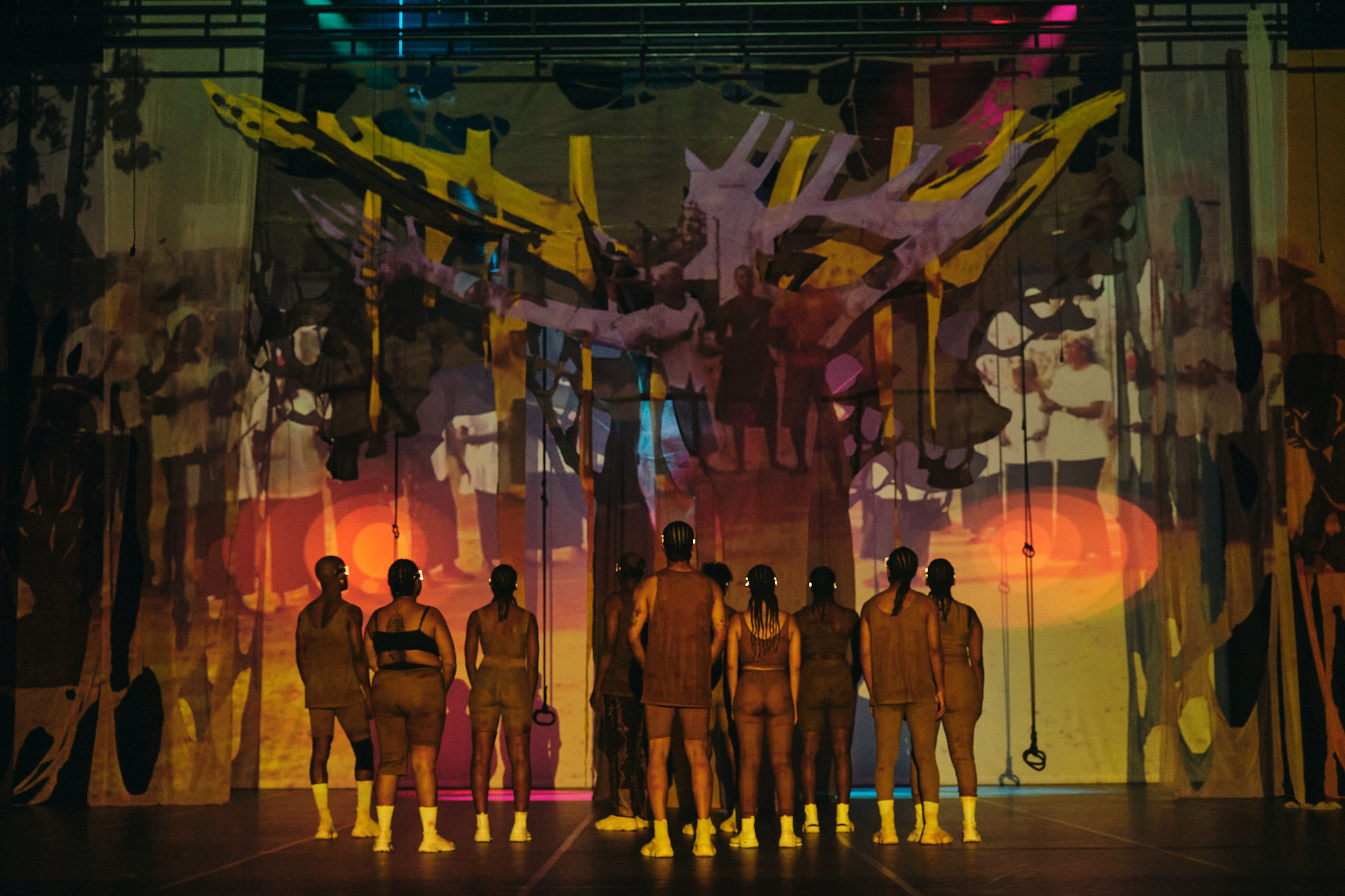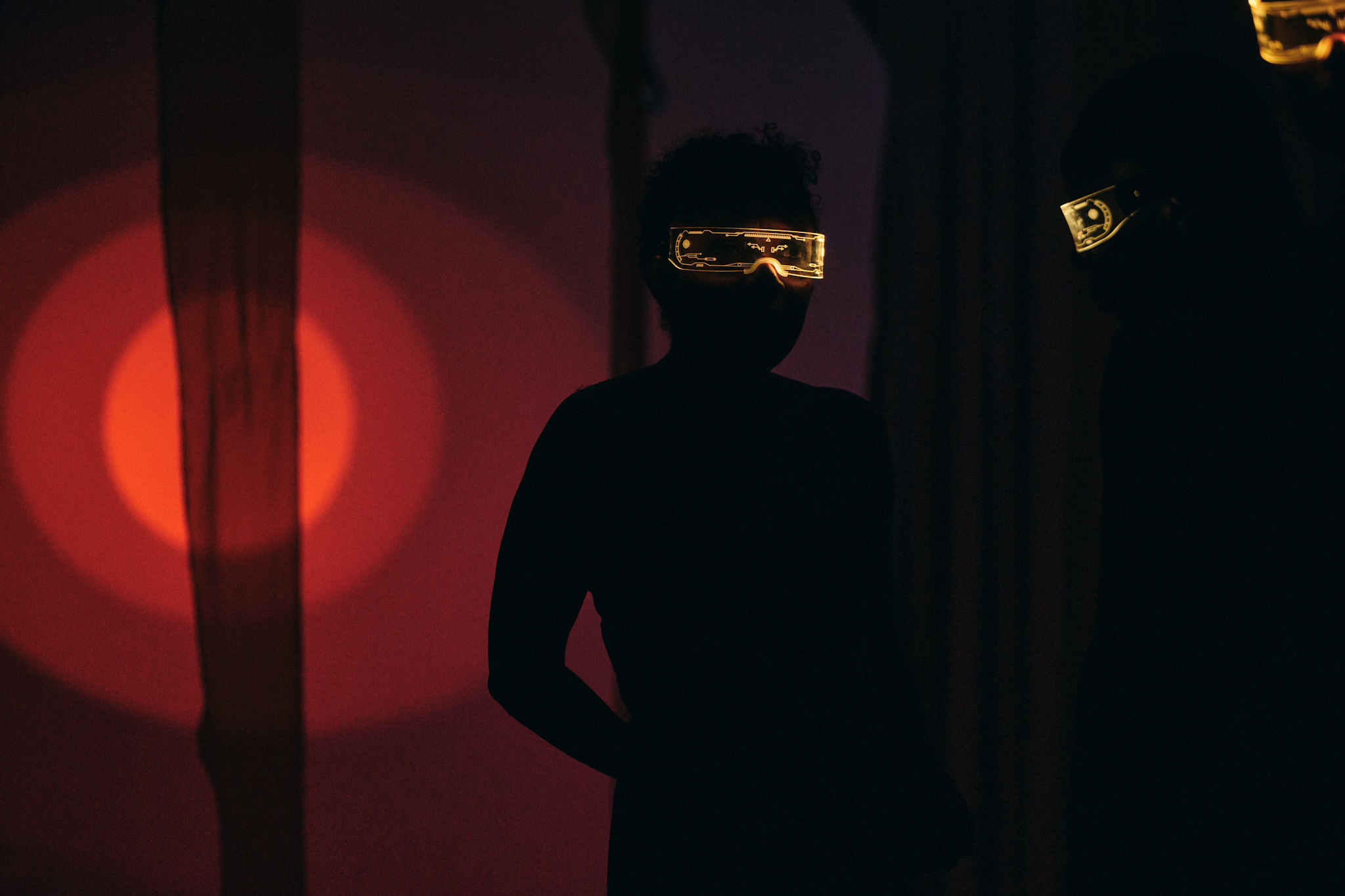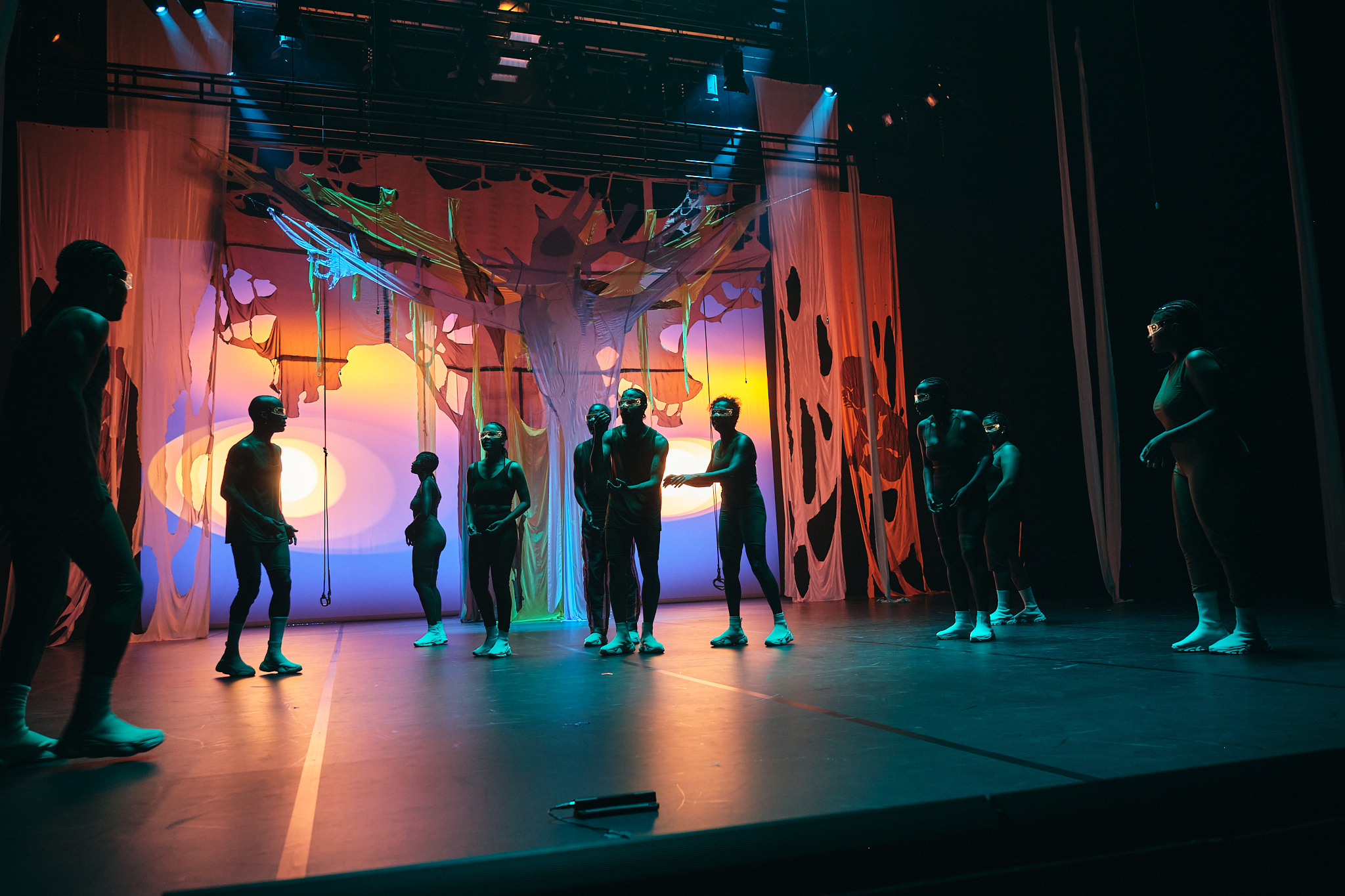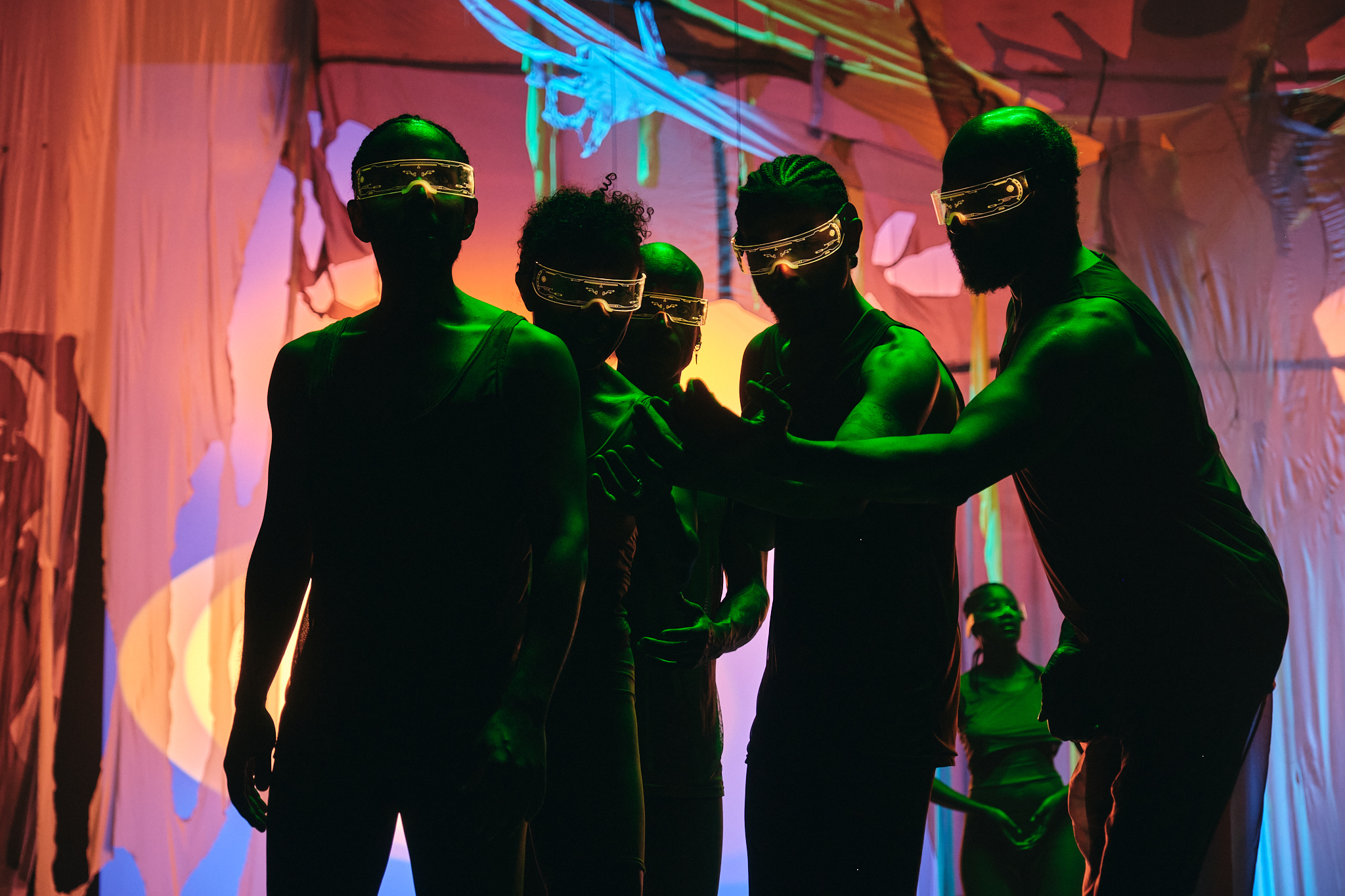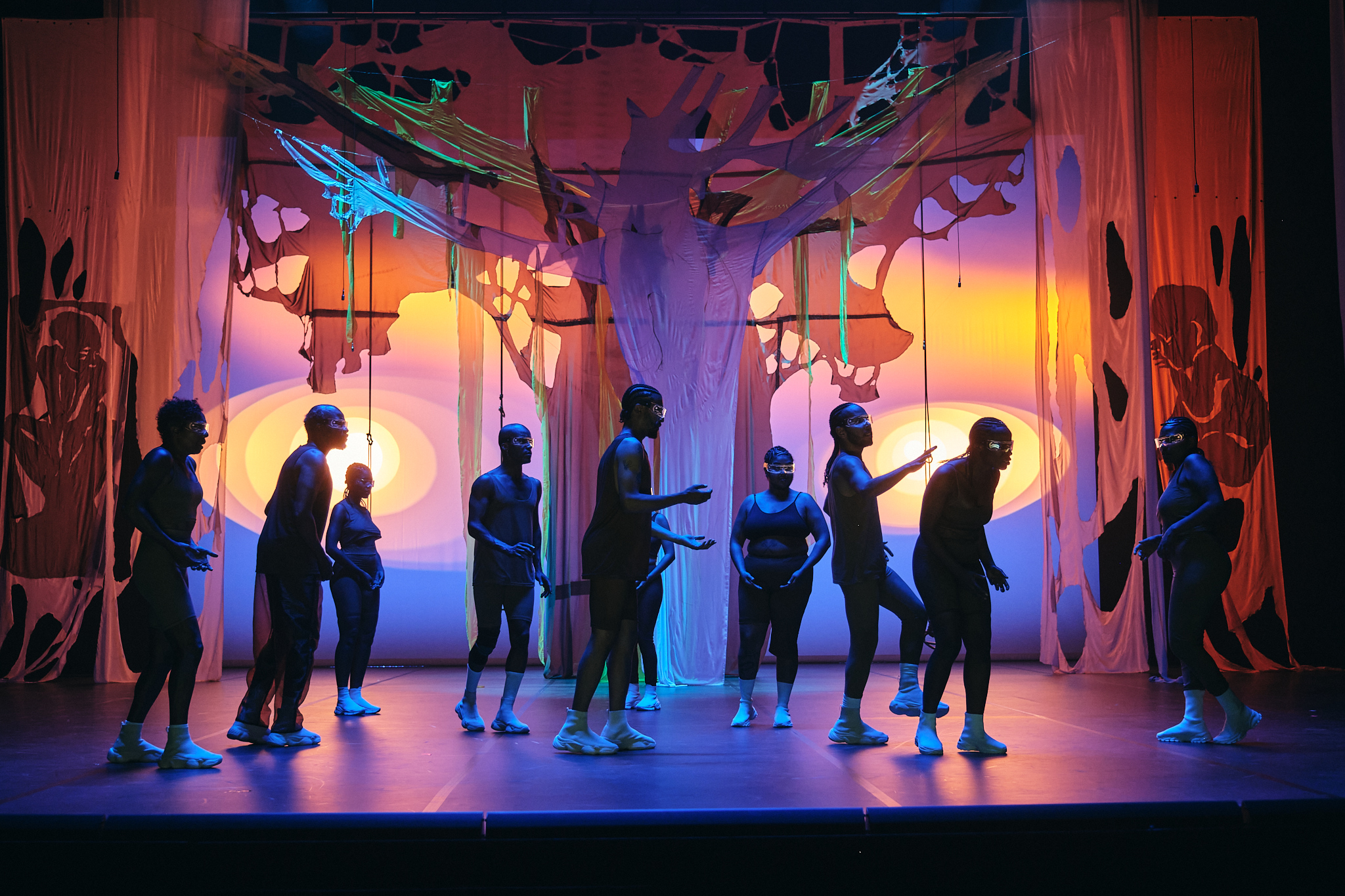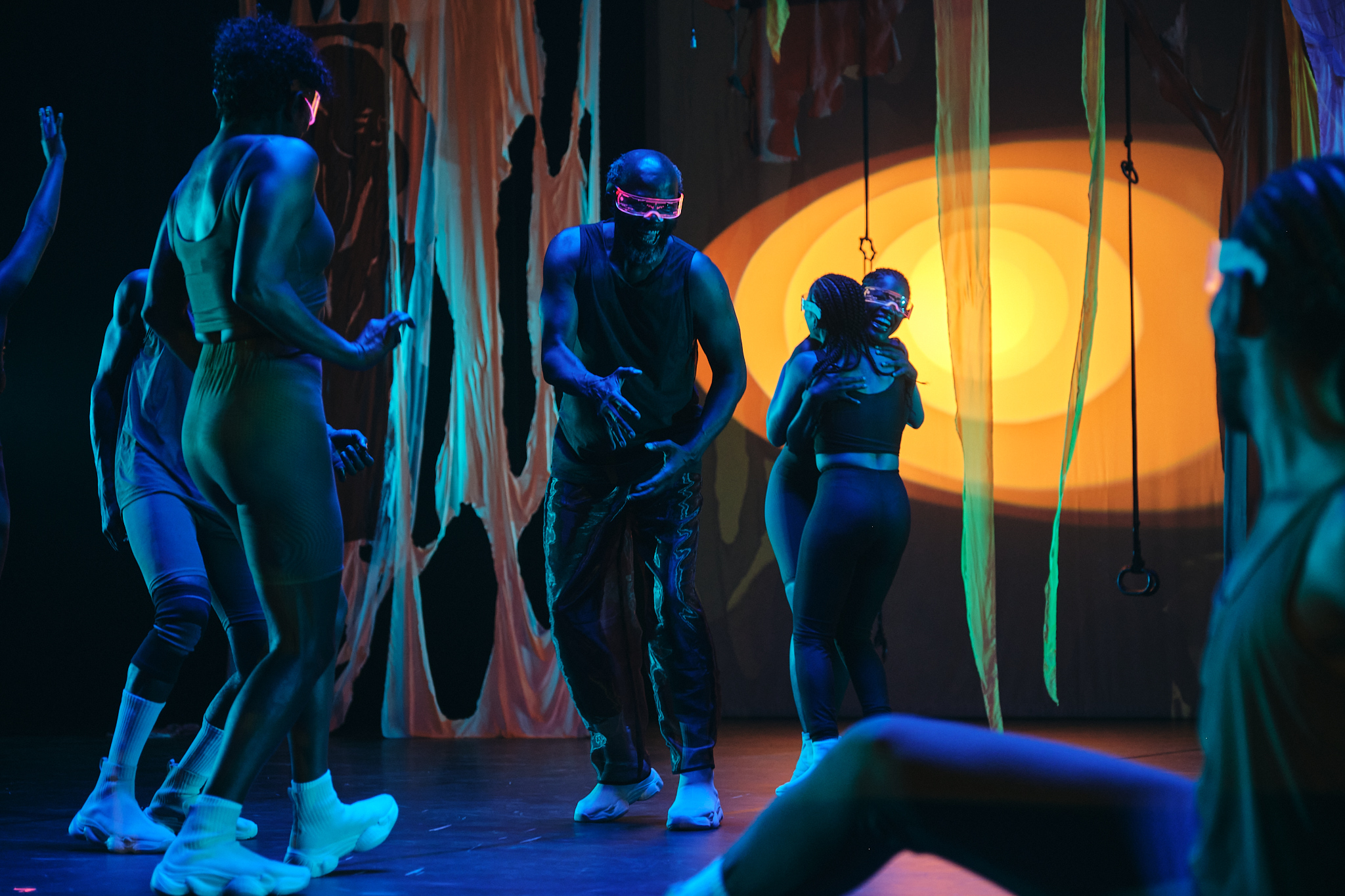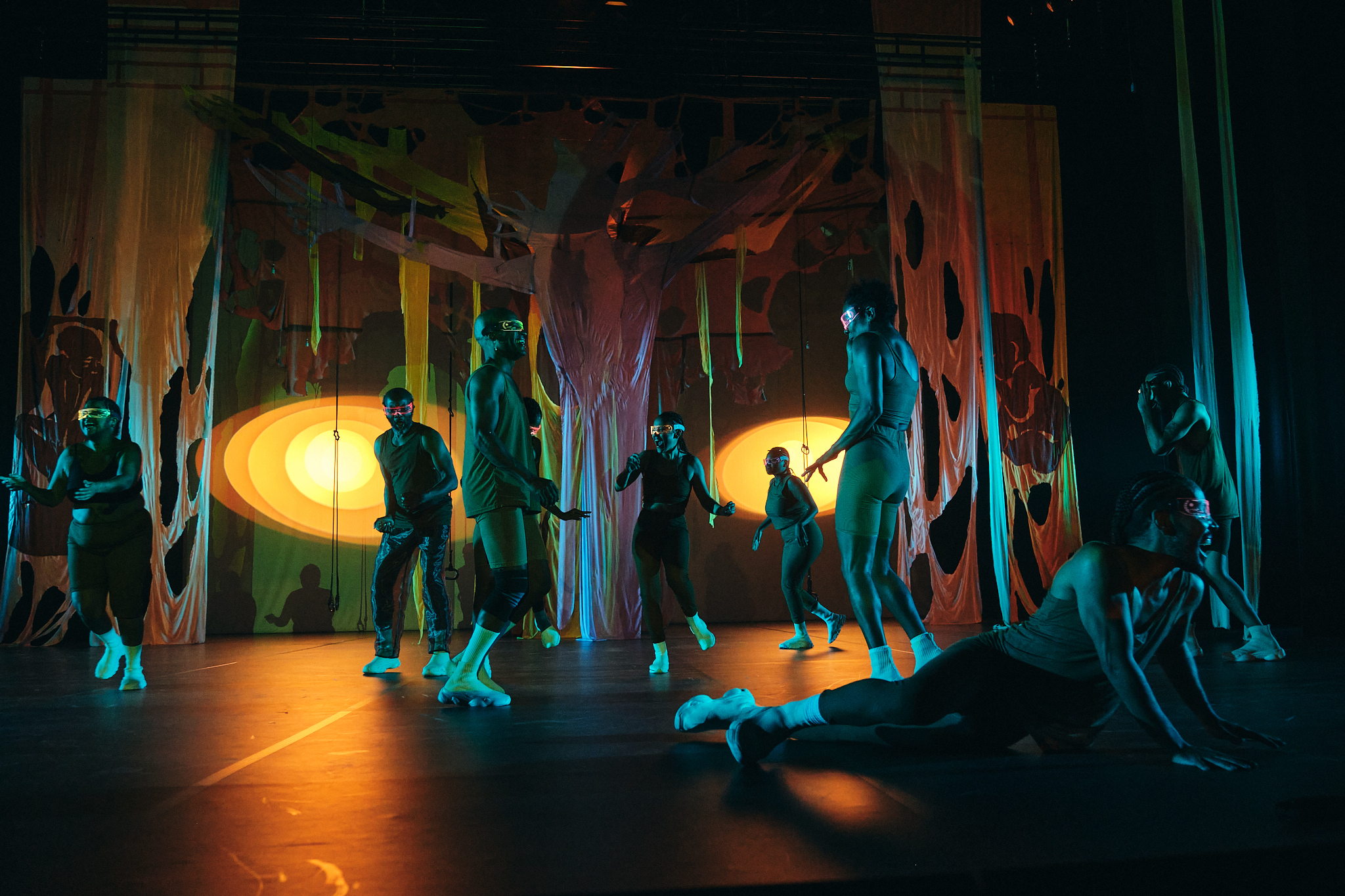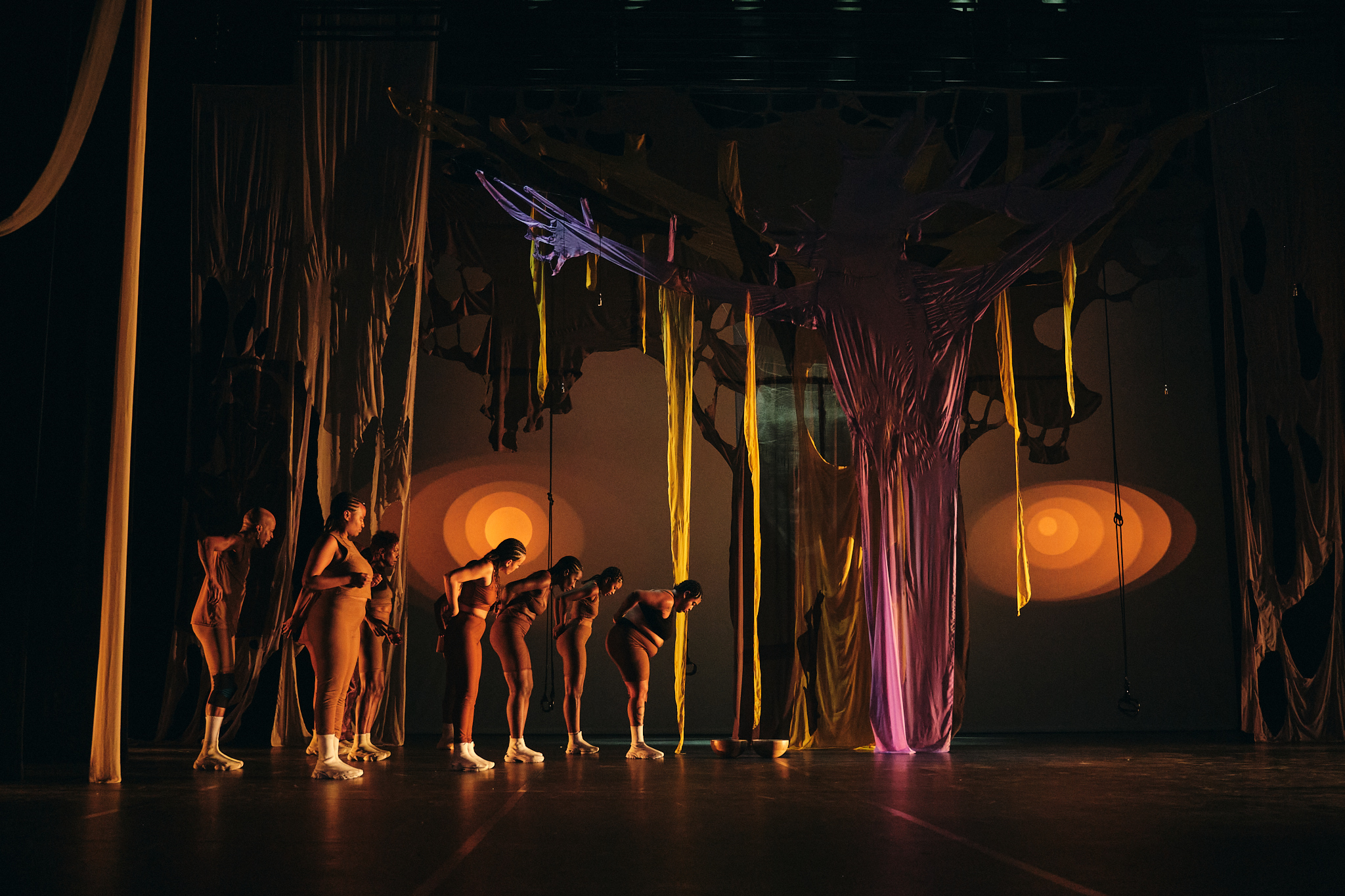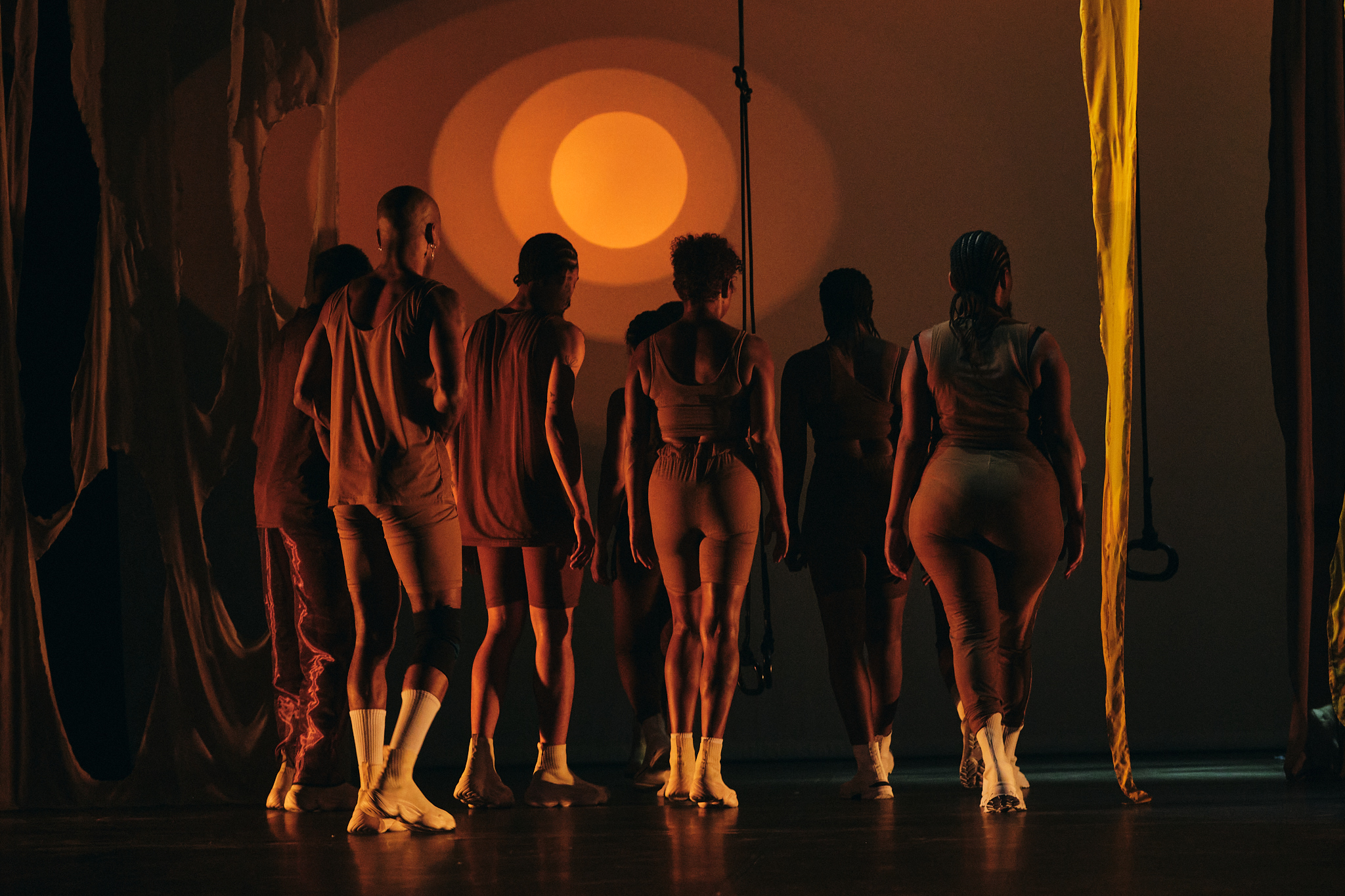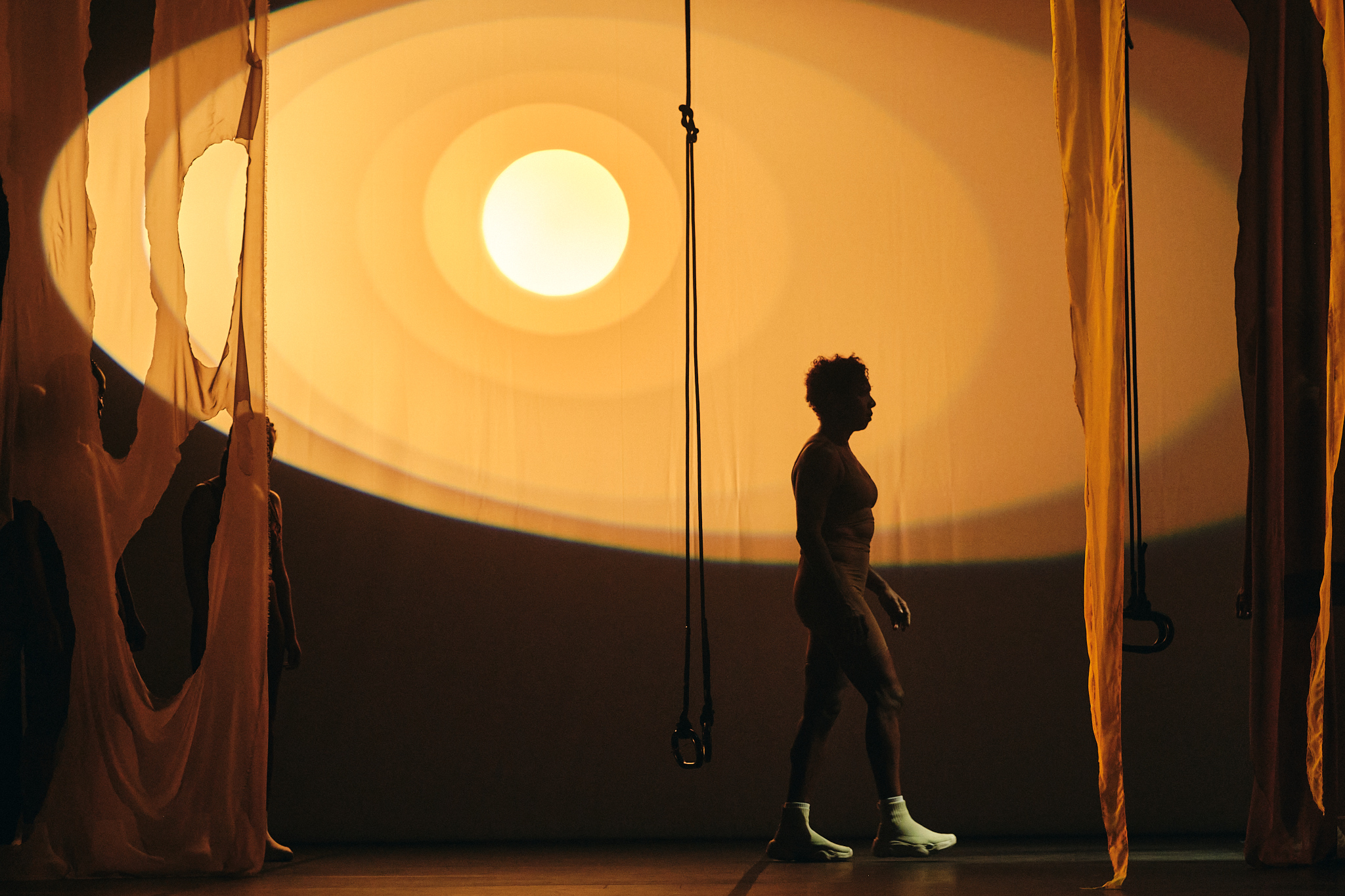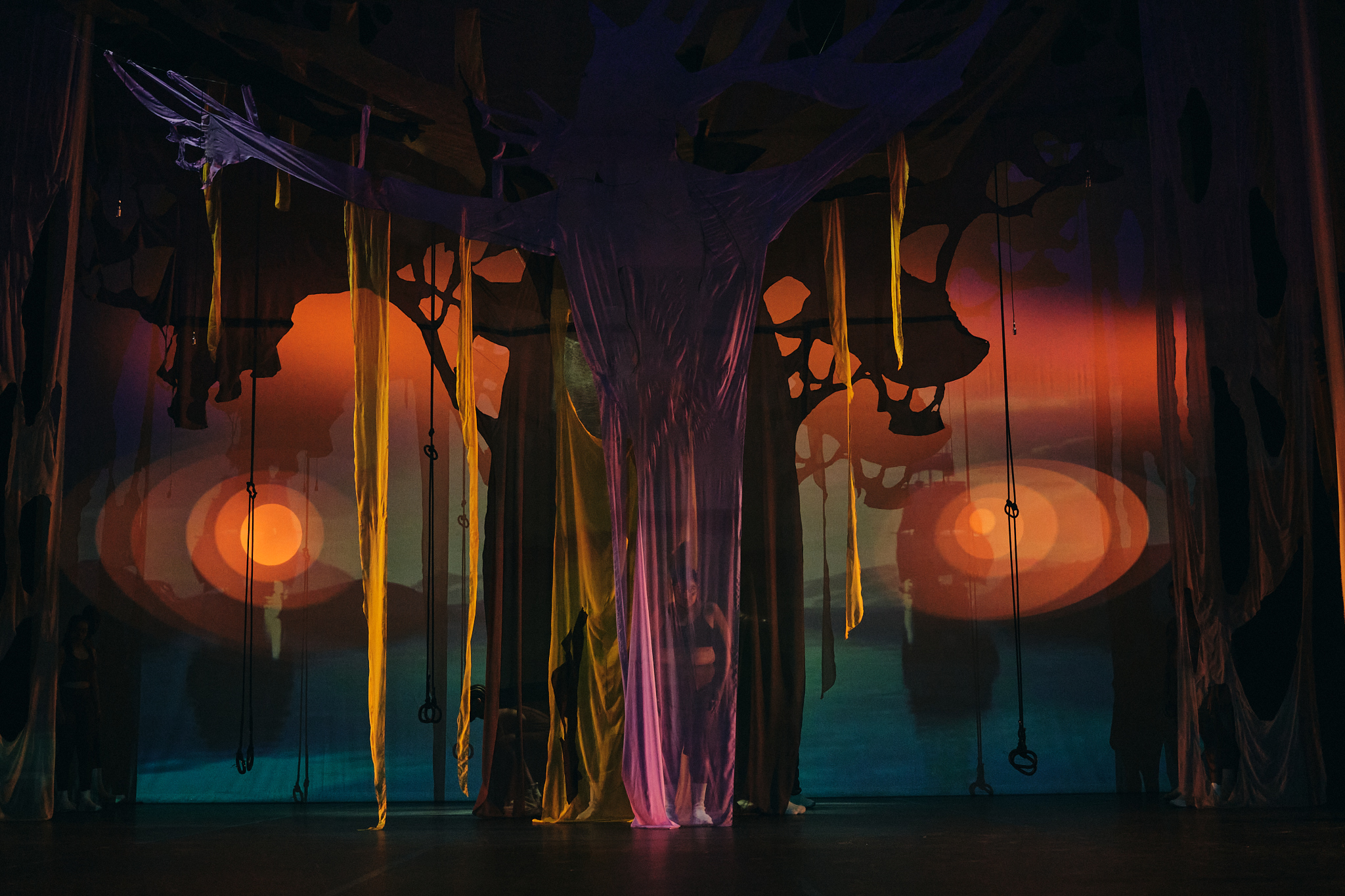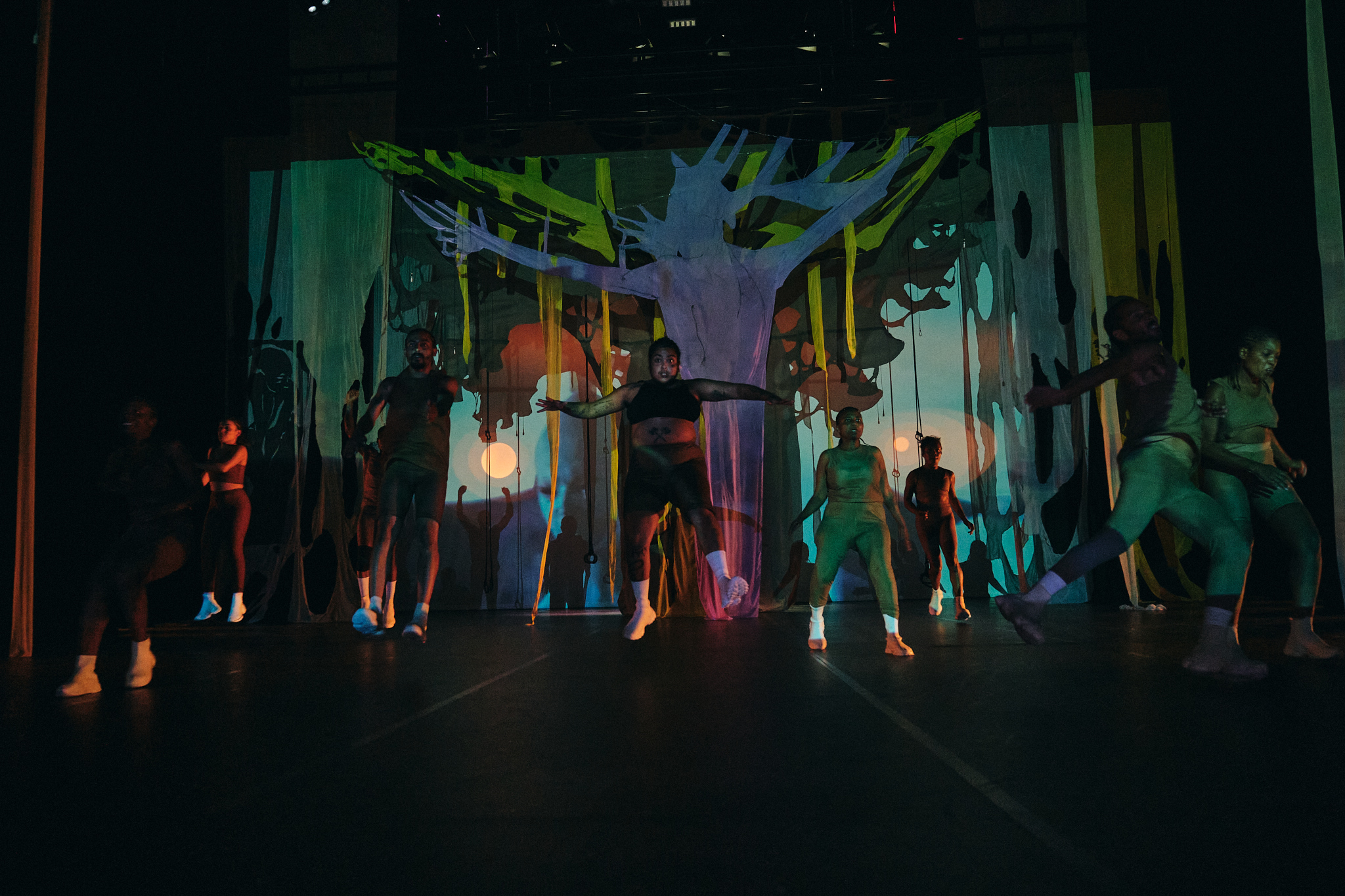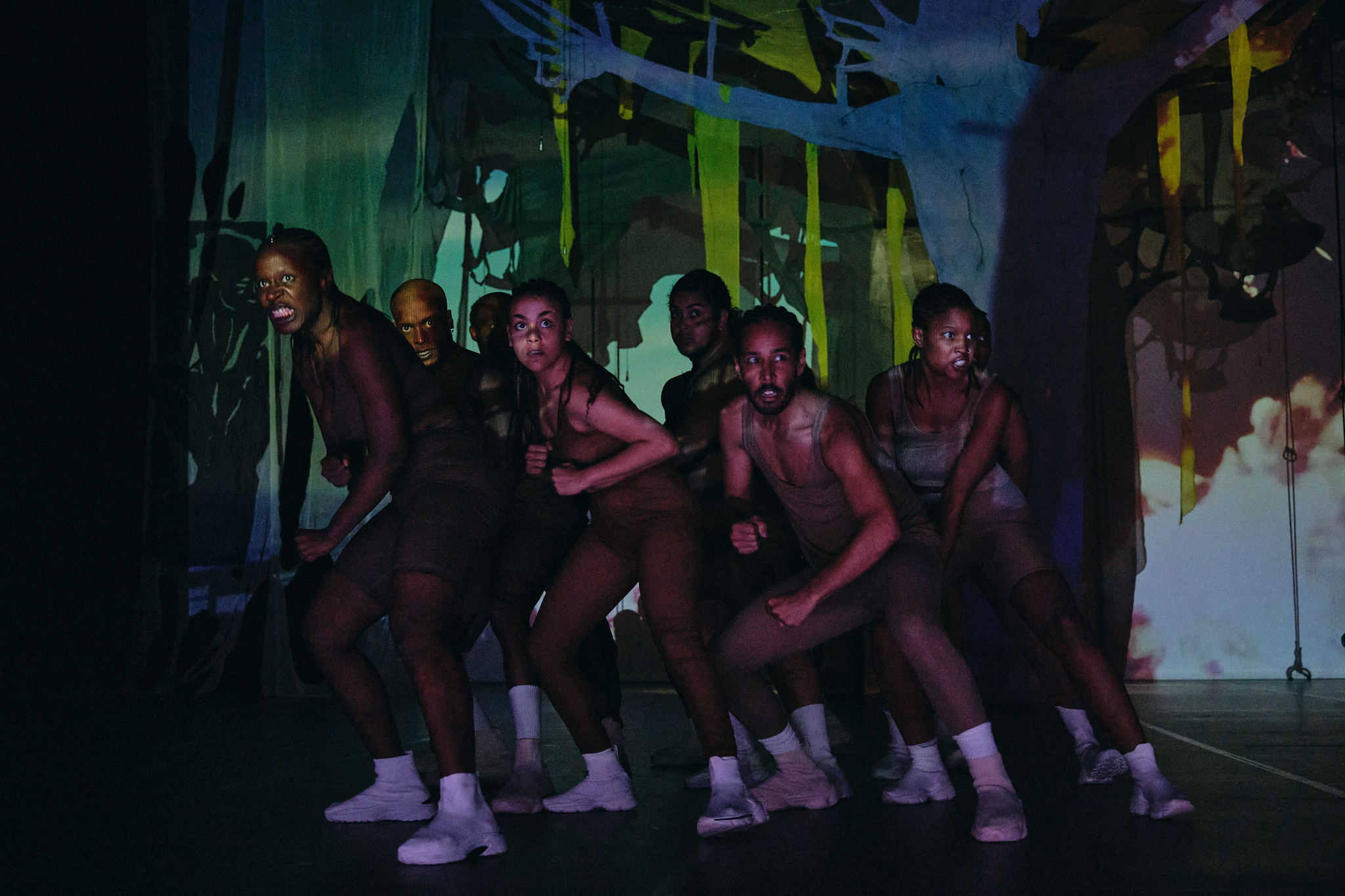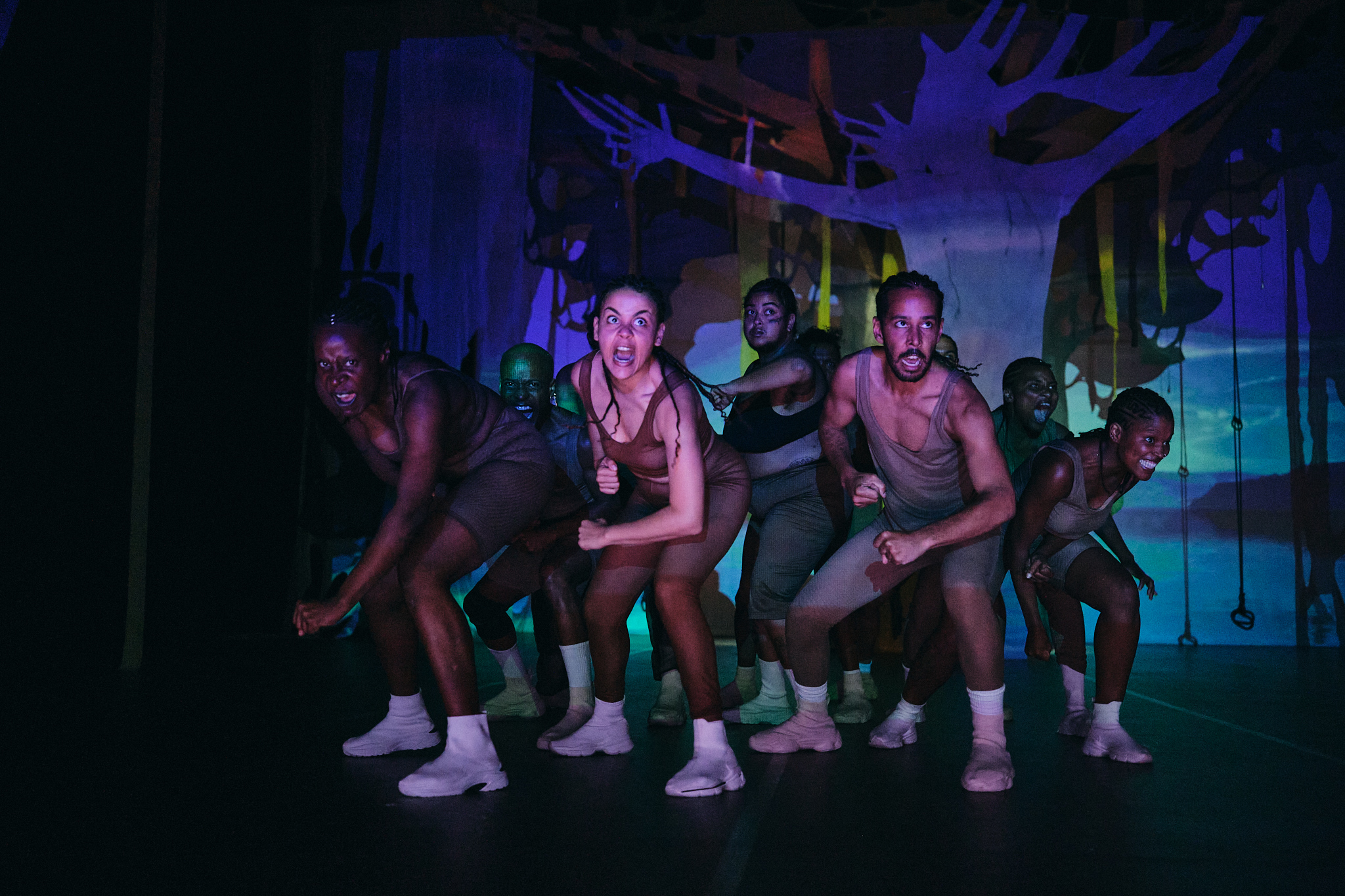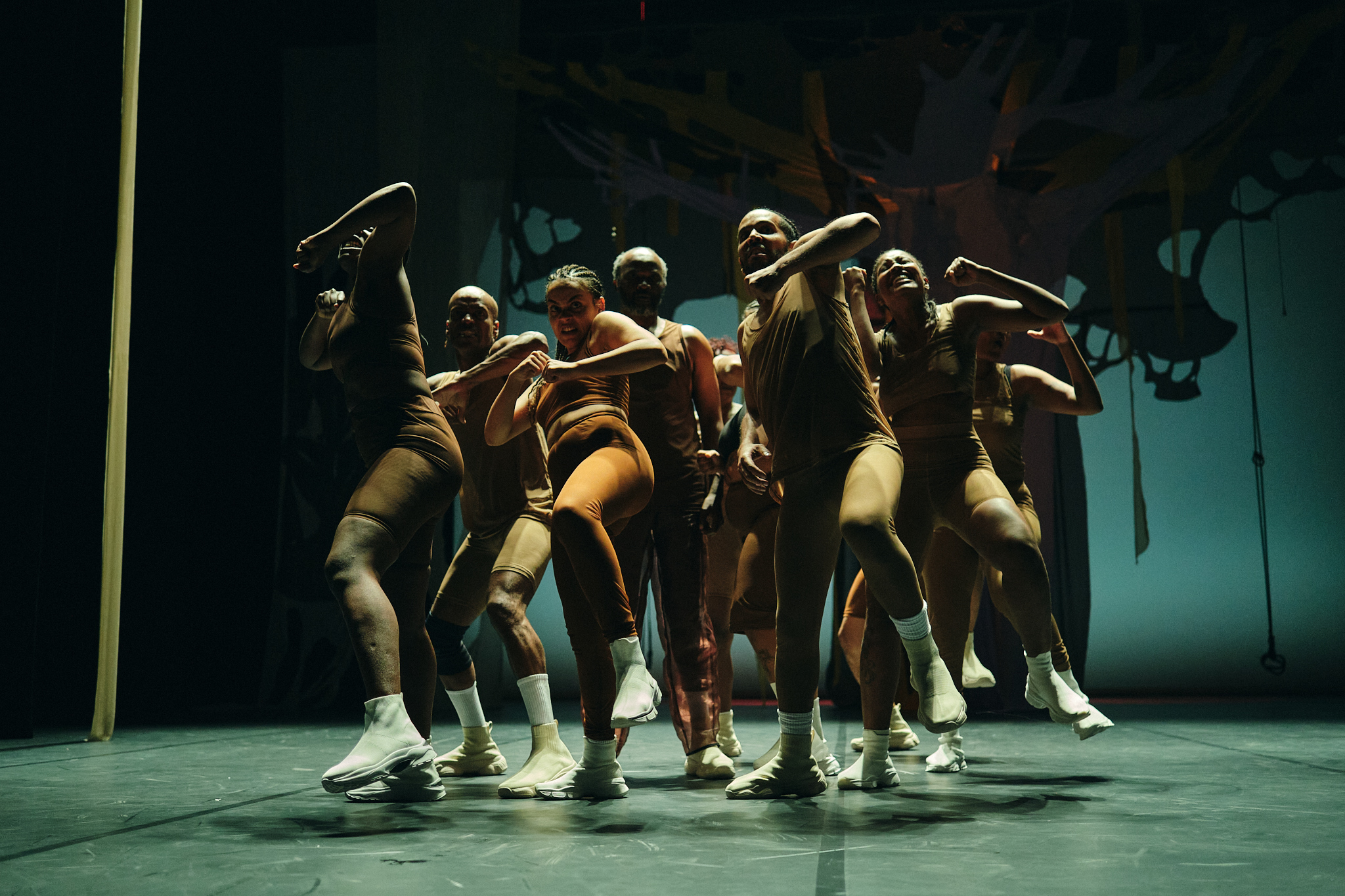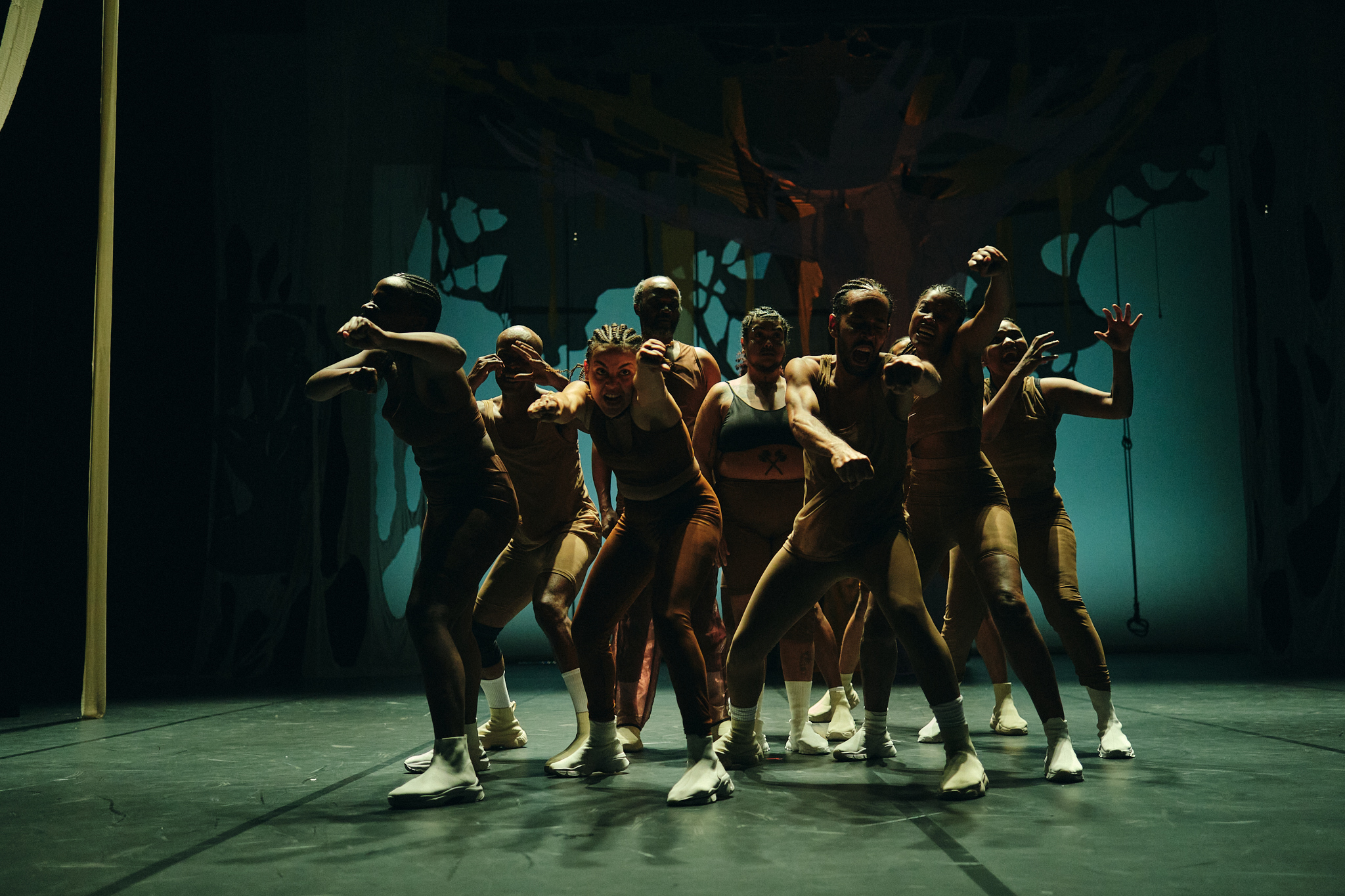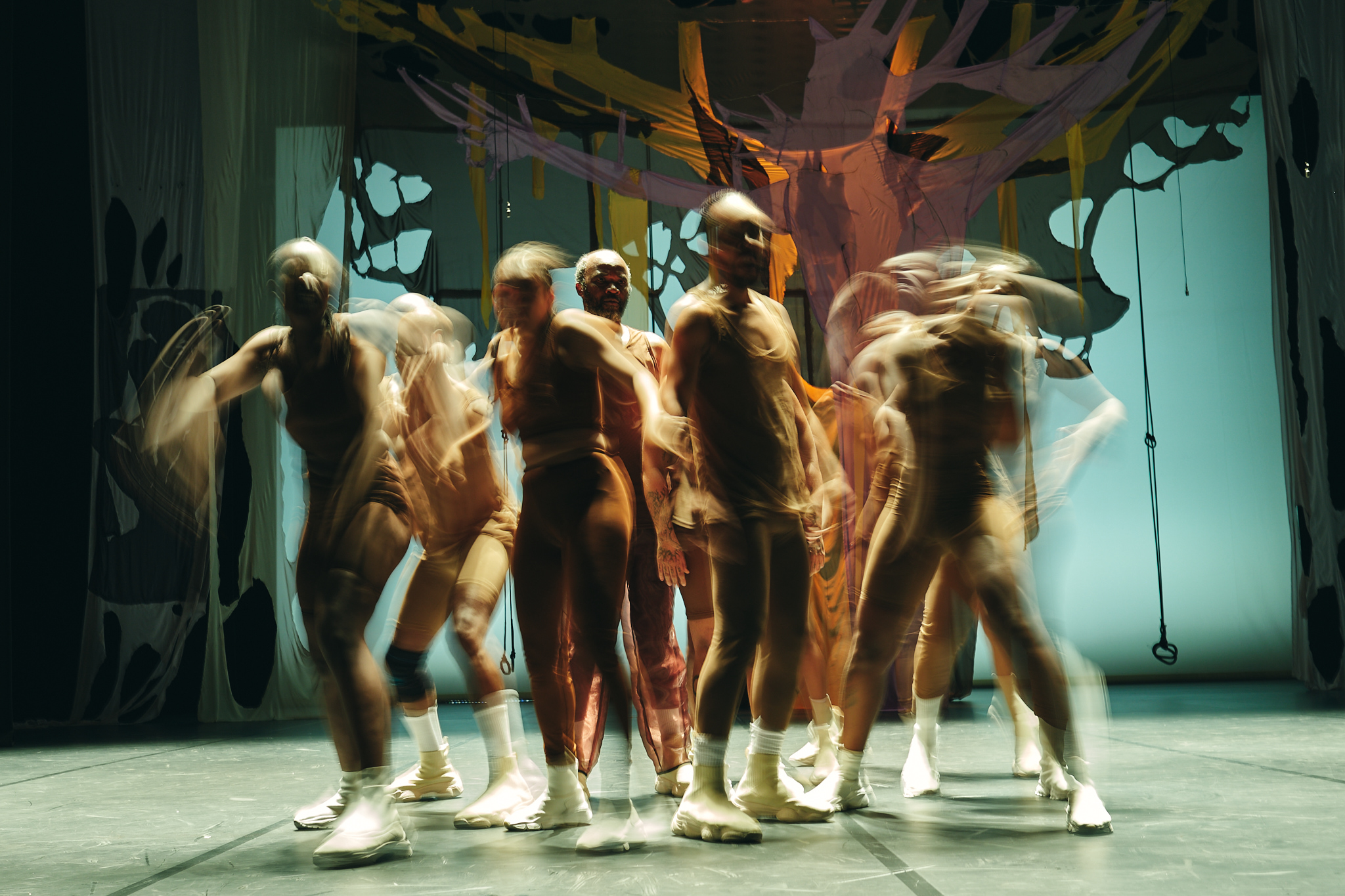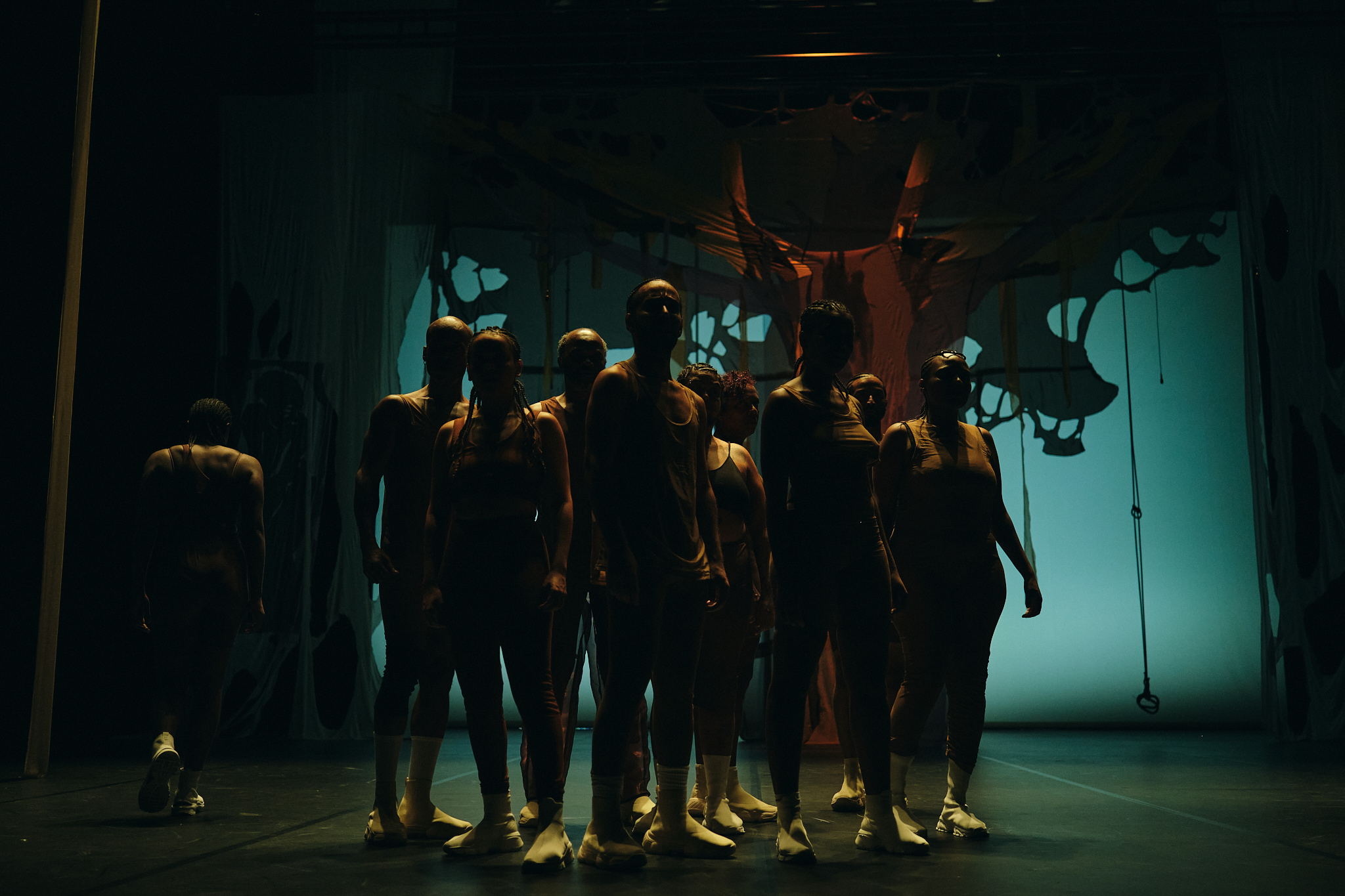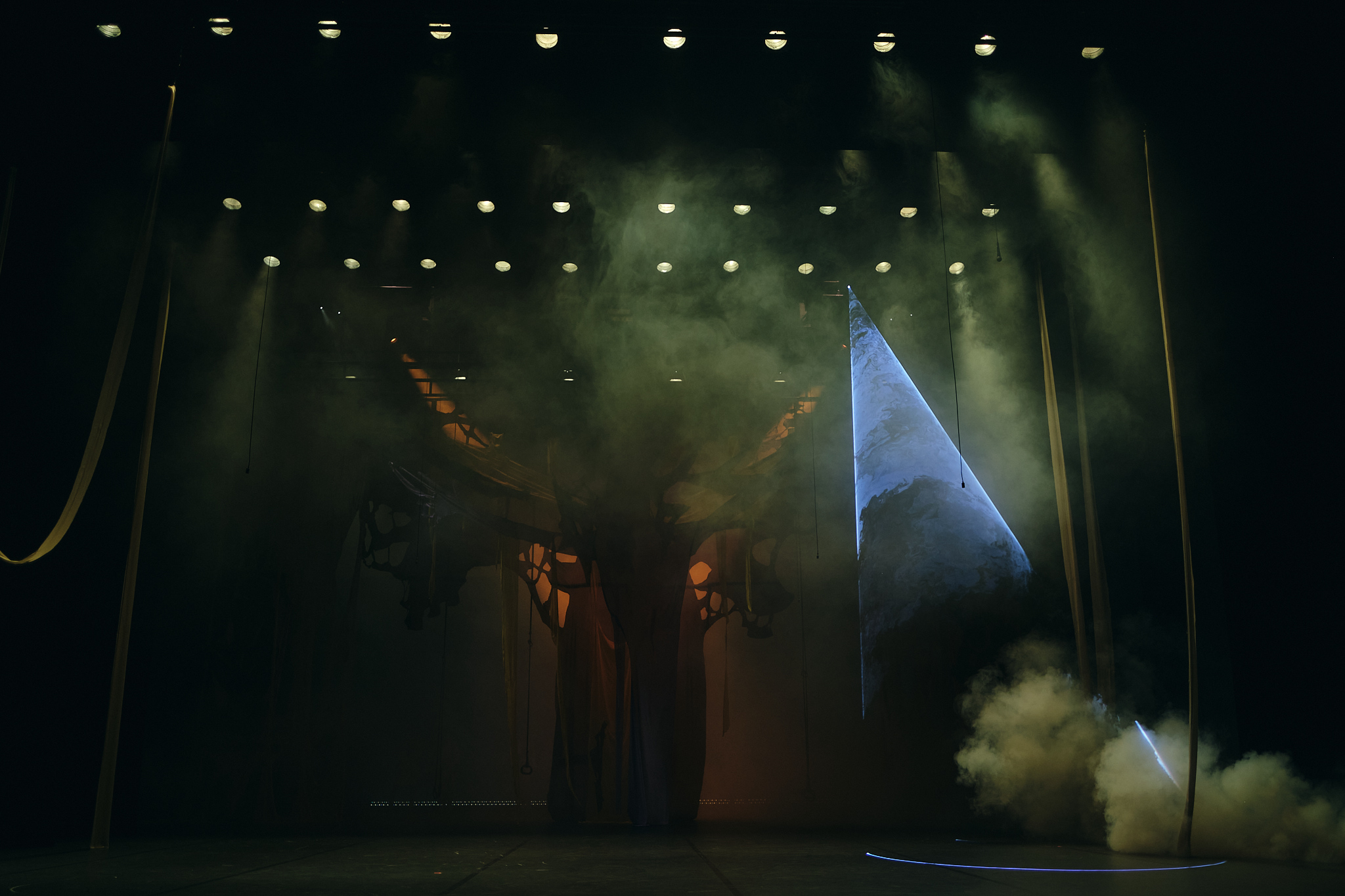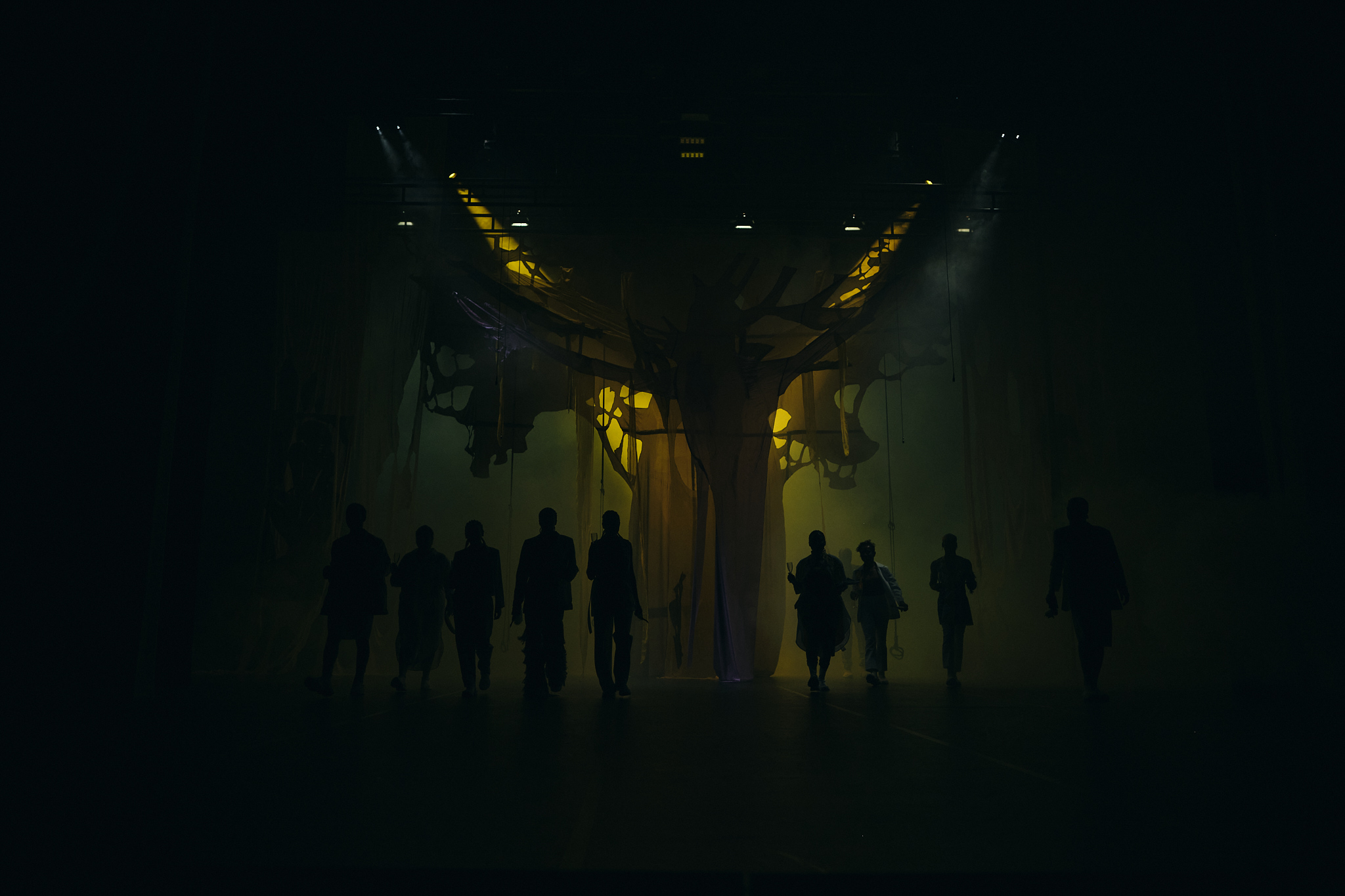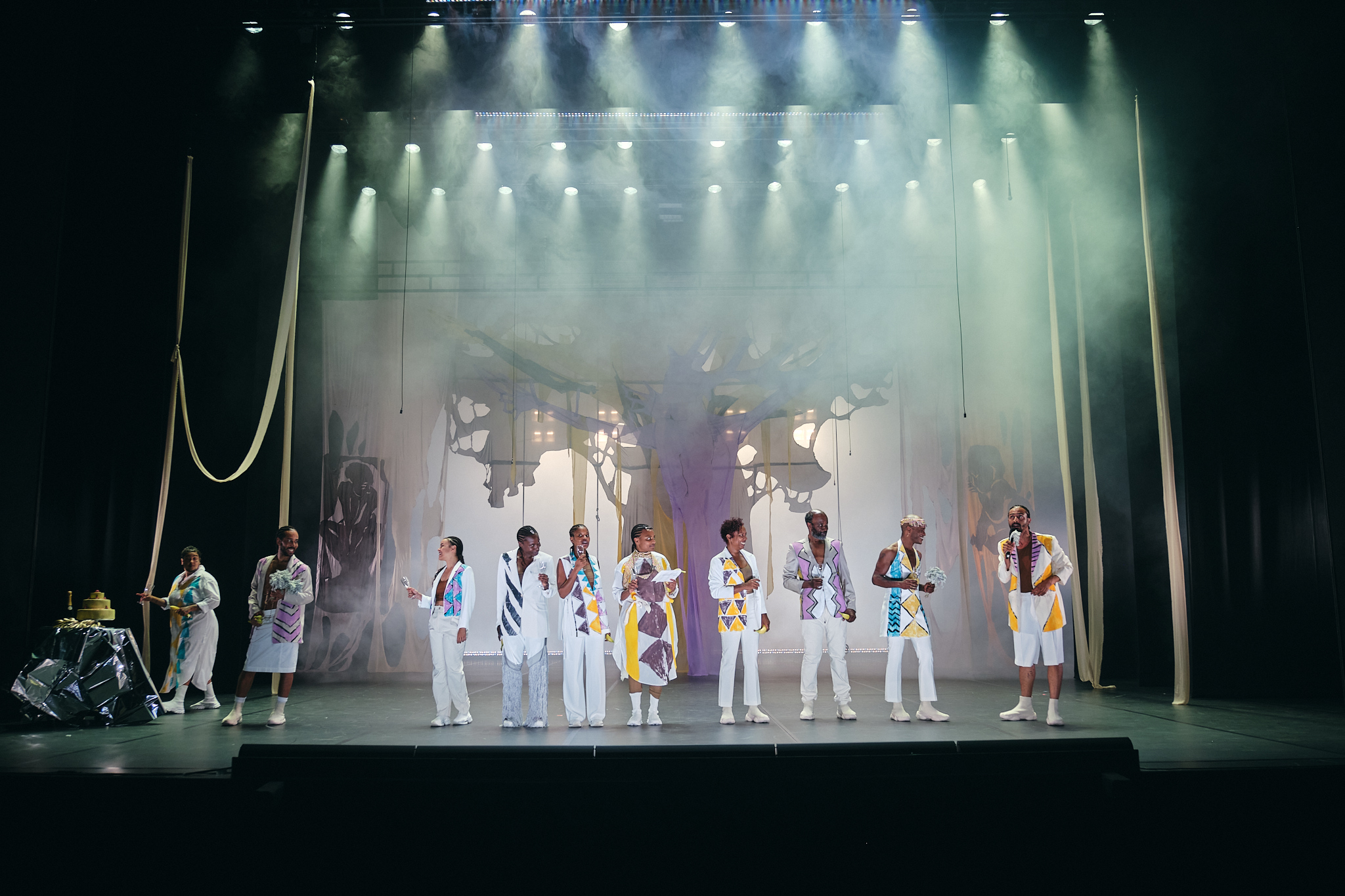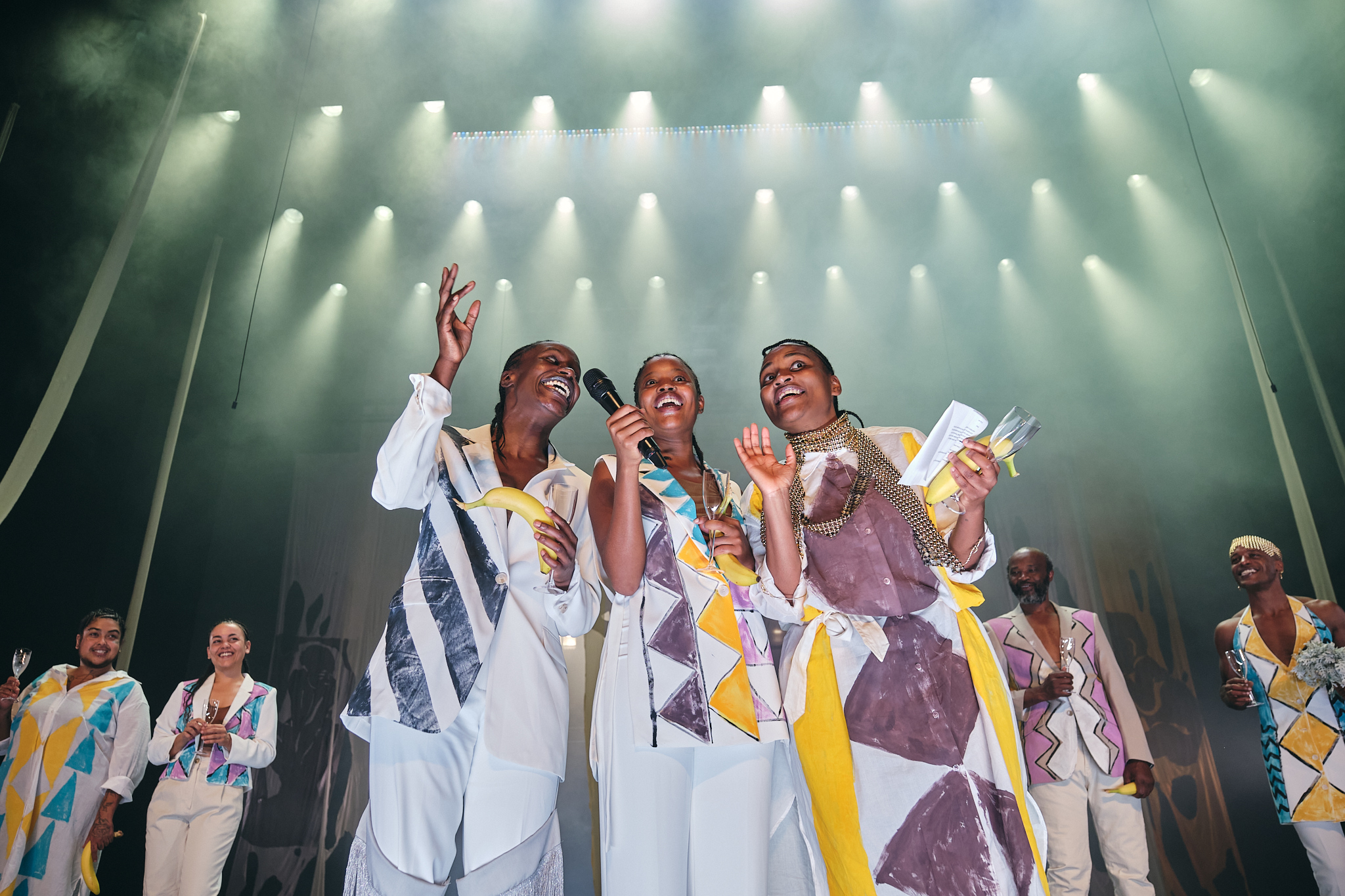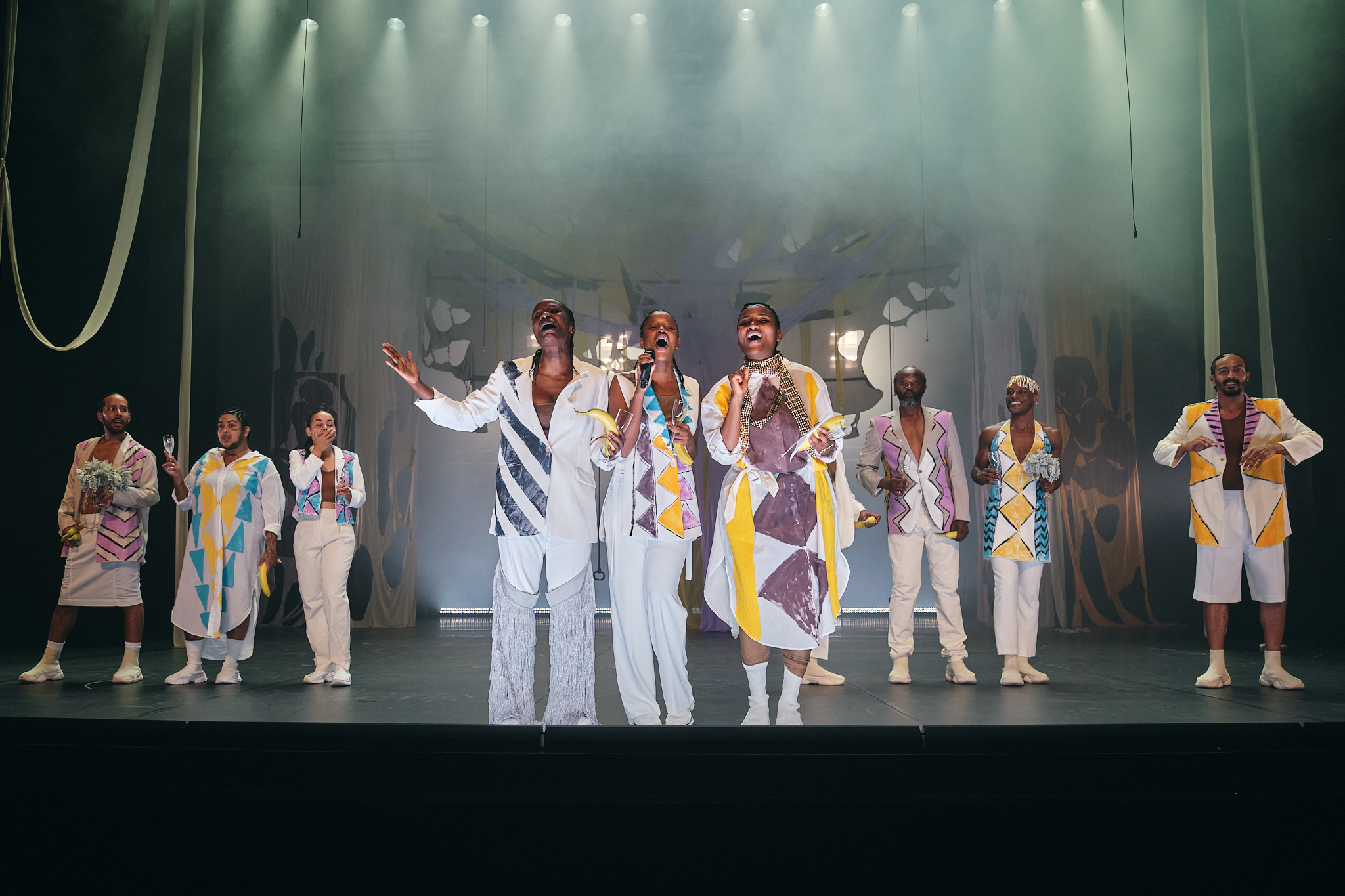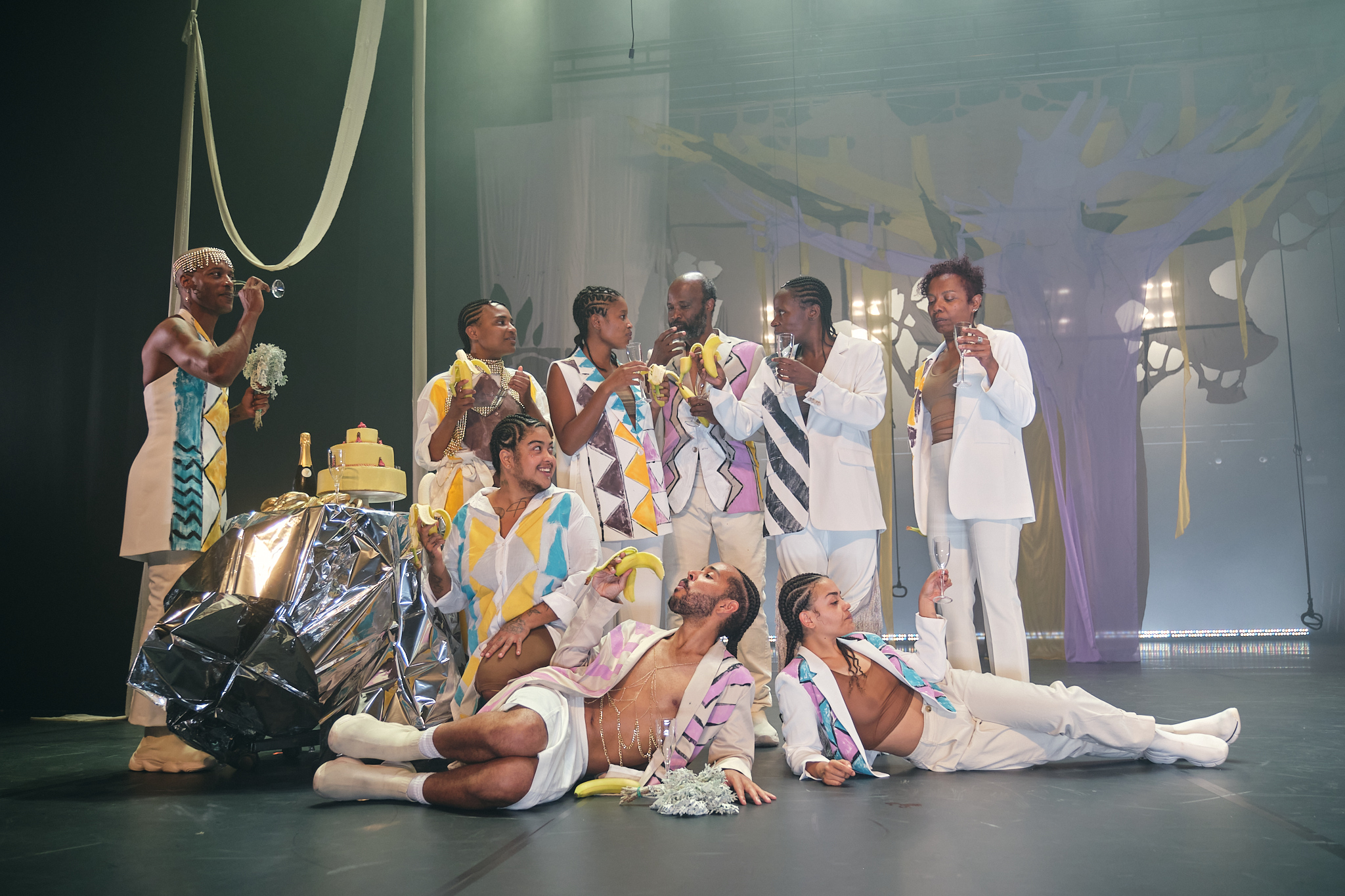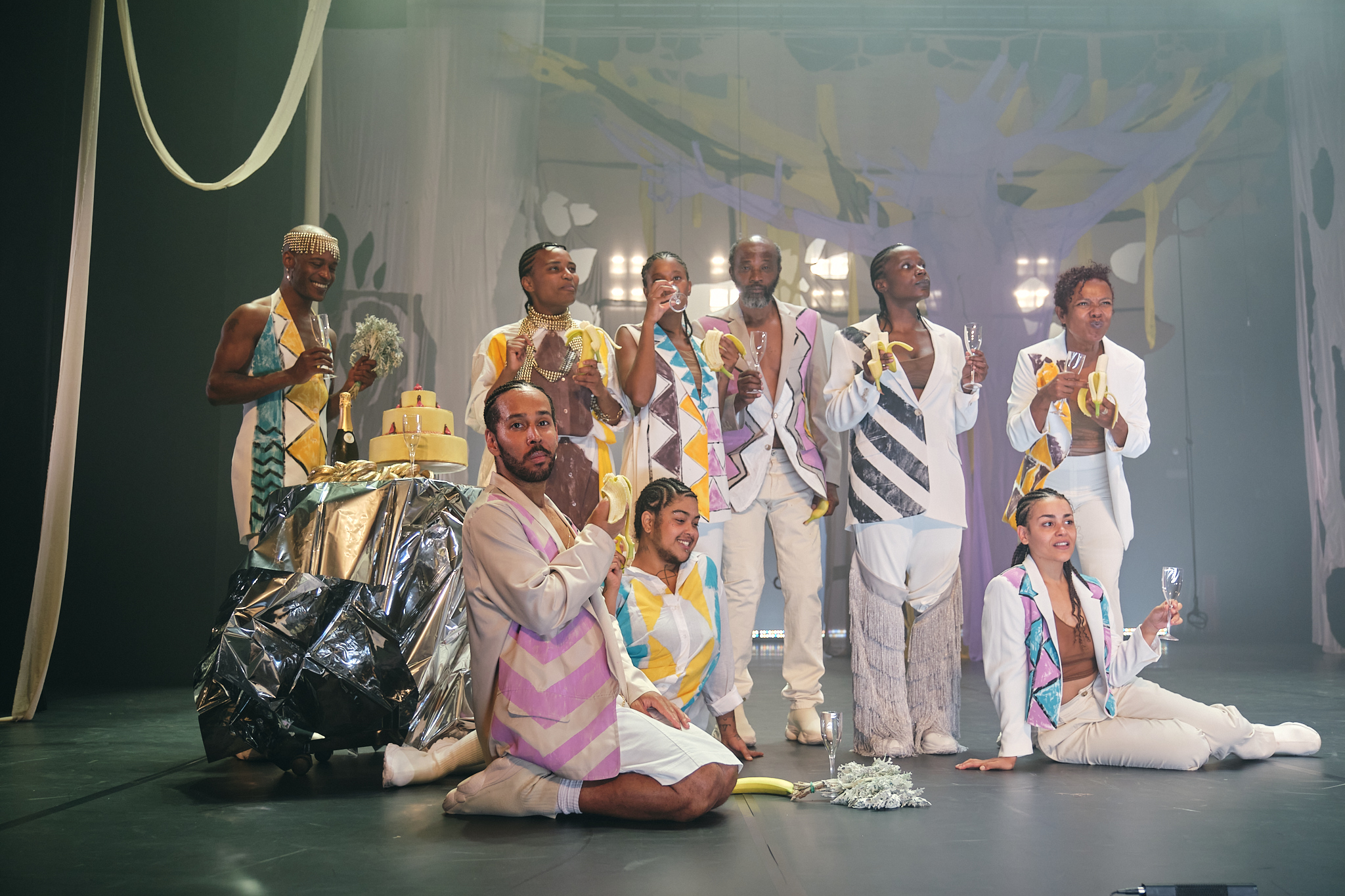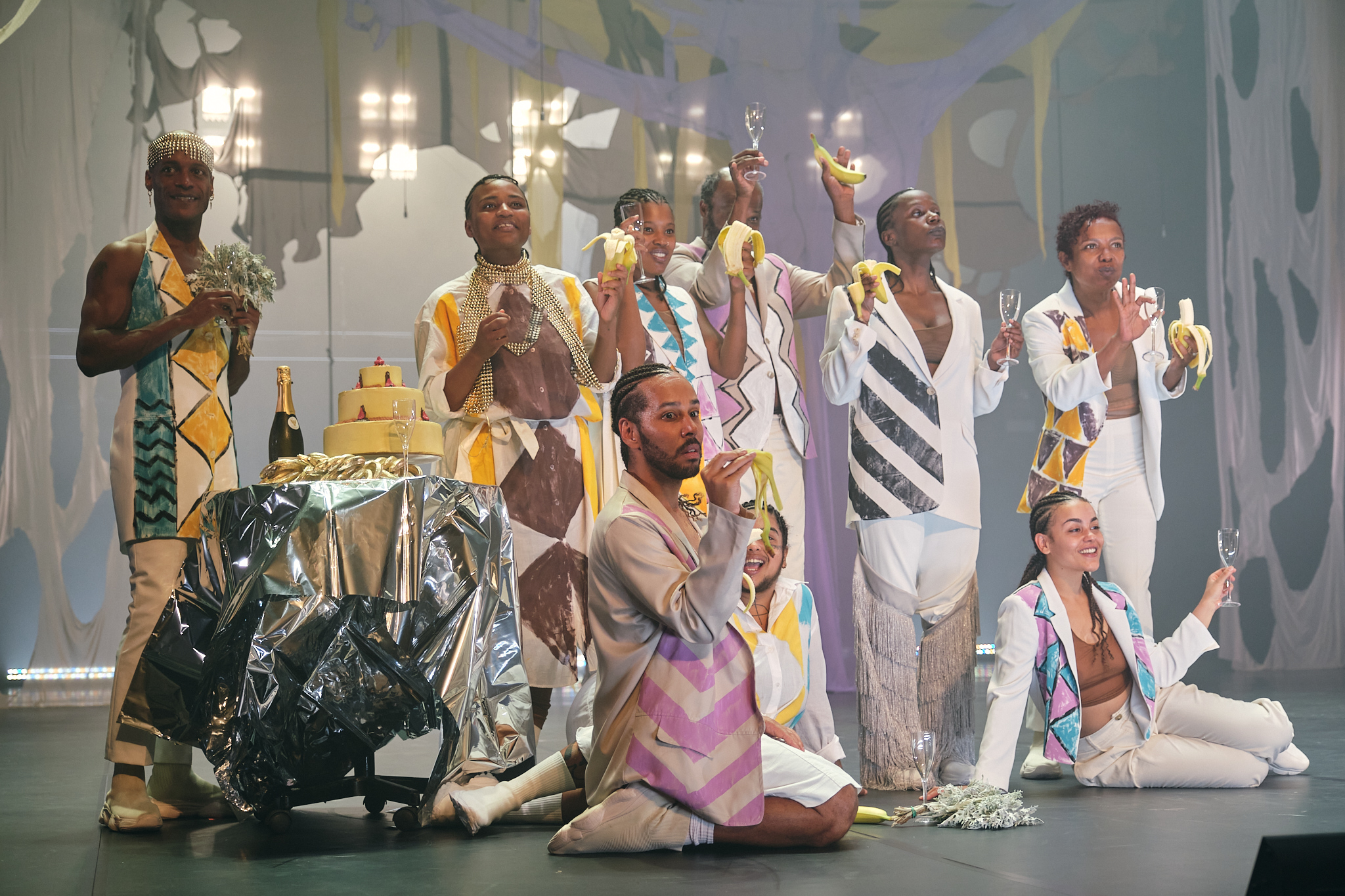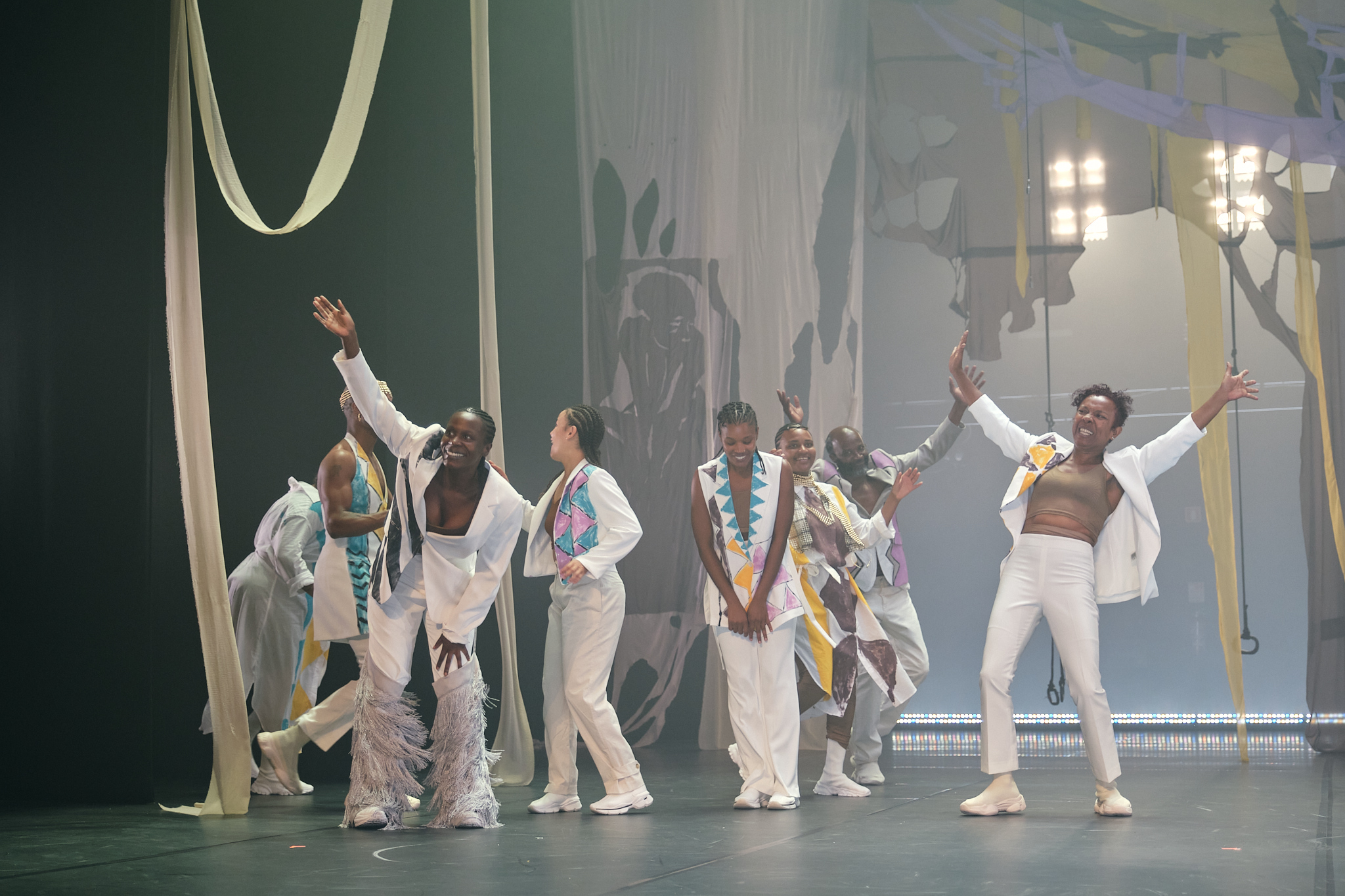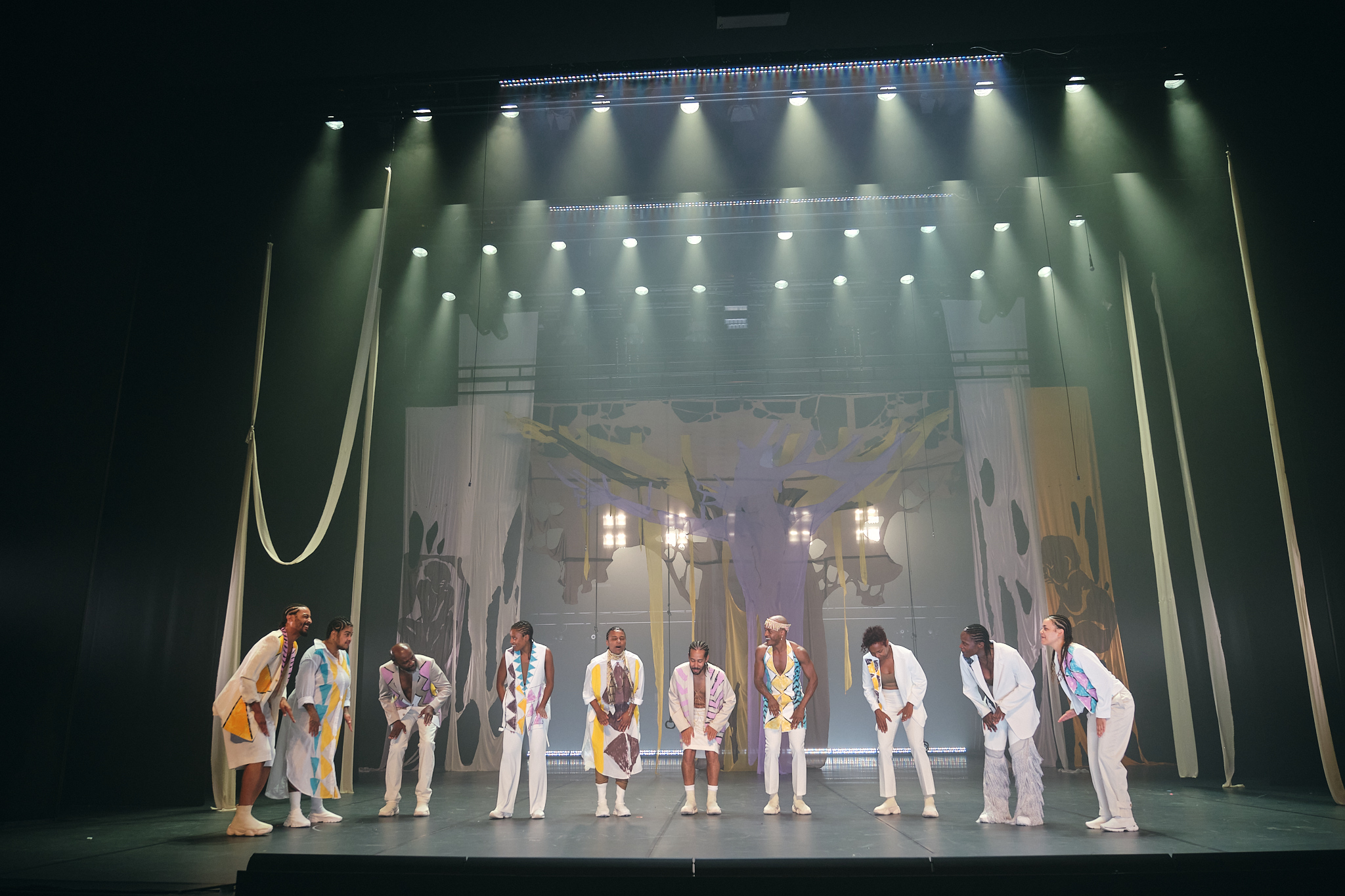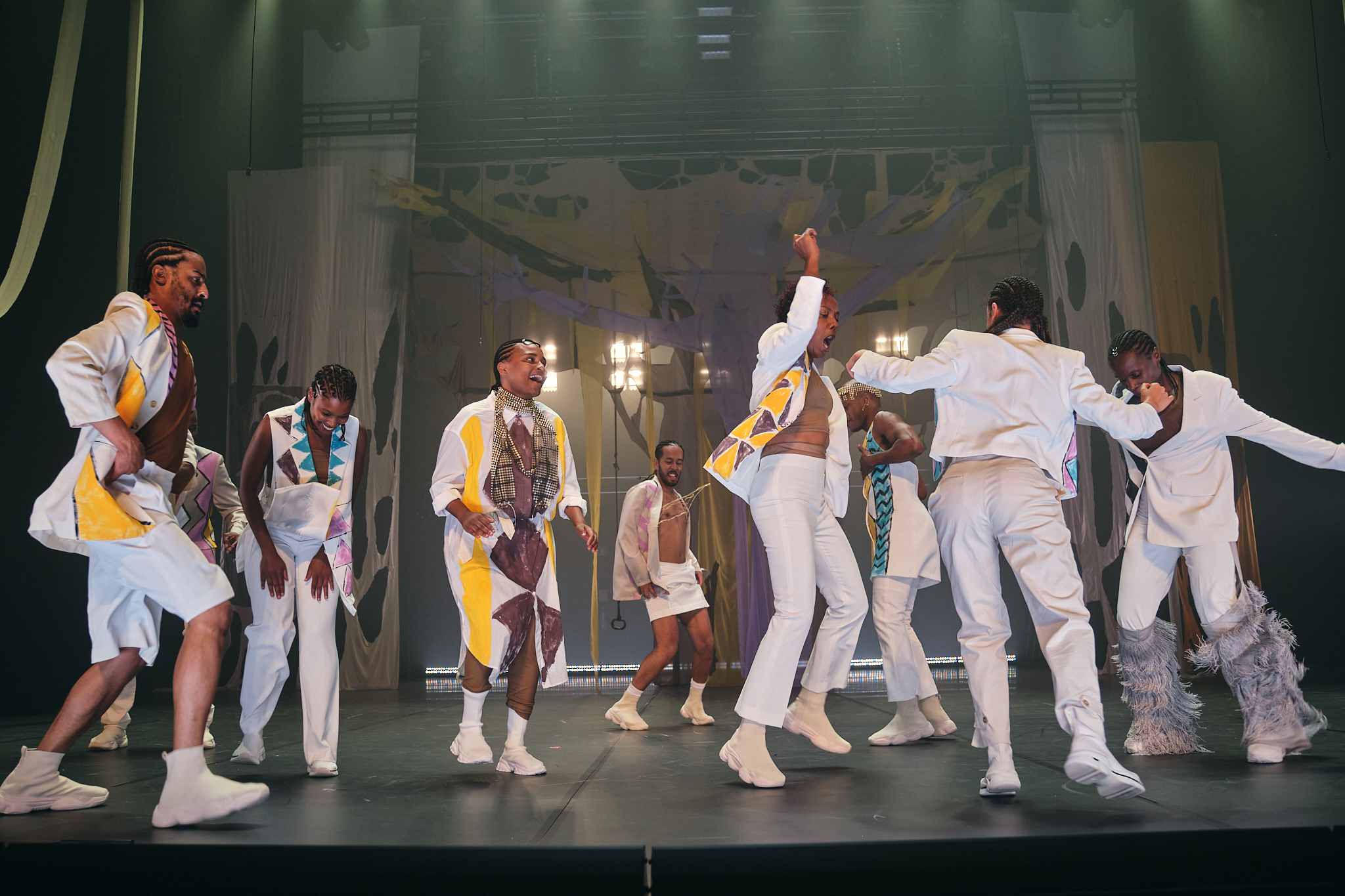Theatre
Portugal
14 years
75'
17 Sep ∙ Saturday ∙ 10:00 pm
Teatro Brás Cubas18 Sep ∙ Sunday ∙ 9:00 pm
Teatro Brás CubasA group’s mission is to find a manuscript with indications about the creation of a new world. While following the clues to its location, it travels through time and space. And in this interplanetary journey, they notice the existence of several worlds that precede their own, which resulted from that same handwriting.
The creation of actresses and performers Cleo Diára, Isabél Zuaa, and Nádia Yracema raises a series of questions. Is it the plan, matter, or planet that defines our actions? Or just the circumstances? How do you deal with the legacy of a previous world?
“Cosmos” was conceived from the desire of artists of Cape Verdean, Angolan and Portuguese origins to revisit African mythology and use it to propose the presentation of an unprecedented myth about the birth of a new world. It intends to create a fusion between ancestry and science, allied to the duty of mission.
“From an idea of interplanetary migration, we looked for other ways to understand the concepts of boundary, family, and existence. We combine tragedy with Afrofuturism to illustrate this idea with the sole guiding emotion of transcendental love,” says the trio in a report on the premiere season in mid-2022 at the Teatro Nacional D. Maria II – the same house where “Aurora Negra” appeared” (2020), about the invisibility of black bodies in the performing arts.
“In these days that climb to the beat of the light, between wars, hunger, pandemic, savage capitalism, racism, shortness of breath, and lack of freedom, we question what would arise if we were really forced to start all over? If only a few bodies were responsible to regenerate, germinate and expand a new world? This is the primary challenge and guiding principle of this show: to rethink humanity, challenging it to reinvent itself”, urge the women who perform three goddesses who weave the thread of life and the destinies of each one.
Who are they
Cléo Diaria (1987) was born in Praia, Cape Verde. She moved to Lisbon as a child. Her first theatrical experiences were at the university group Miscutem and, later, at the Escola Superior de Teatro e Cinema (ESTC). Isabél Zuaa (1987) is of Portuguese origin with ancestry in Guinea-Bissau and Angola. The contact with art emerged in the African dance group Prata Luar, based in Lisbon. Her training includes visits to Chapitô, ESTC, and UniRio. She researches new dramaturgy in which the black woman is the protagonist and host of her own stories. Nádia Yracema (1988) was born in Luanda, Angola. She began her training in the course of the Students’ Theater at the University of Coimbra, TEUC. At the same time, she studied law at the same institution. She actively participates in social organizations that promote collaborative work in cinema, theater, and performance.
Datasheet
Artistic direction and creation Cleo Diára, Isabél Zuaa e Nádia Yracema
Interpretation Alberto Magassela, Ana Valentim, Bruno Huca, Cleo Diára, Isabél Zuaa, Luan Okun, Mauro Hermínio, Nádia Yracema, Paulo Pascoal e Vera Cruz
Dramaturgy support Melissa Rodrigues
Creation suppport Mário Coelho e Inês Vaz
Choreography Bruno Huca
Scenography Tony Cassanelli
Scenography production Rodrigo Vasconcelos
Original music and sound design Carolina Varela, Nuno Santos (XULLAJI) e Yaw Tembe
String instruments Desordem do Conceptual Branco – Cire Ndiaye, Suzana Francês, Florêncio Manhique, Mbye Ebrima, Sebastião Bergman e Evanilda Veiga
Voiceover Carolina Varela, Caroline Faforiji Odeyale e Rogério de Carvalho
Irubá translation Olusegun Peter Odeyale
Costumes Eloísa D’ Ascensão e Mónica Lafayette
Costume making Myroslava Volosh, Salim e Atelier Termaji
Props Almost Black, Eloísa d’Ascensao, Jorge Carvalhal e Rodrigo Vasconcelos
Technical direction Manuel Abrantes
Video Elvis Morelli, Maria Tsukamoto e Tiago Moura
Lighting design Eduardo Abdala
Sound operation Ana Carochinho
Production direction Maria Tsukamoto
Executive production Ana Lobato
Poster image photography Marco Maiato
Scene photography Filipe Ferreira
Co-production residency O Espaço do Tempo
Coproduction Teatro Nacional D. Maria II
Production Cama AC
Administration and direction Daniel Matos e Joana Duarte
Production in Brazil Cassia de Souza – radar cultural gestão e projetos
Supported by Alkantara, Casa Independente, Largo Residências, Minutos Redondos, Centro Cultural Malaposta e Câmara Municipal de Odivelas
Acknowledgment INMUNE – Instituto da Mulher Negra em Portugal, SOS Racismo, DJASS – Associação de Afrodescendentes, Maria Matos Figueiredo, Maria da Luz, Rosa Pinto, Manuel Maria Cristo, Nilton Cristo, Nilvano Cristo, Karol Nowisky, Kassay, Tiago Martins, Vito Martins, Ricardo Martins, João Martins, Noémia Martins, Jamile Cazumbá, Felipe Drehmer, Daniel Matos, Kaio Matos, Kaysen Matos, Kelio Matos, Elisabete Barreto, Alcinda Alves, Cleida Alves, Raquel Lima, Joana Costa Santos, Sara Tavares, Daniel Matos, Joana Duarte, Miguel Carranca, Tiago Moura, Inês Valdez, Patrícia Portela, Cláudia Duarte, Tiago Rodrigues, Magda Bizarro, Welket Bungué, Dori Nigro e Zenaida Ramos.
“Cosmos” is a project funded by the Portuguese Republic – Culture | General Direction of Art



